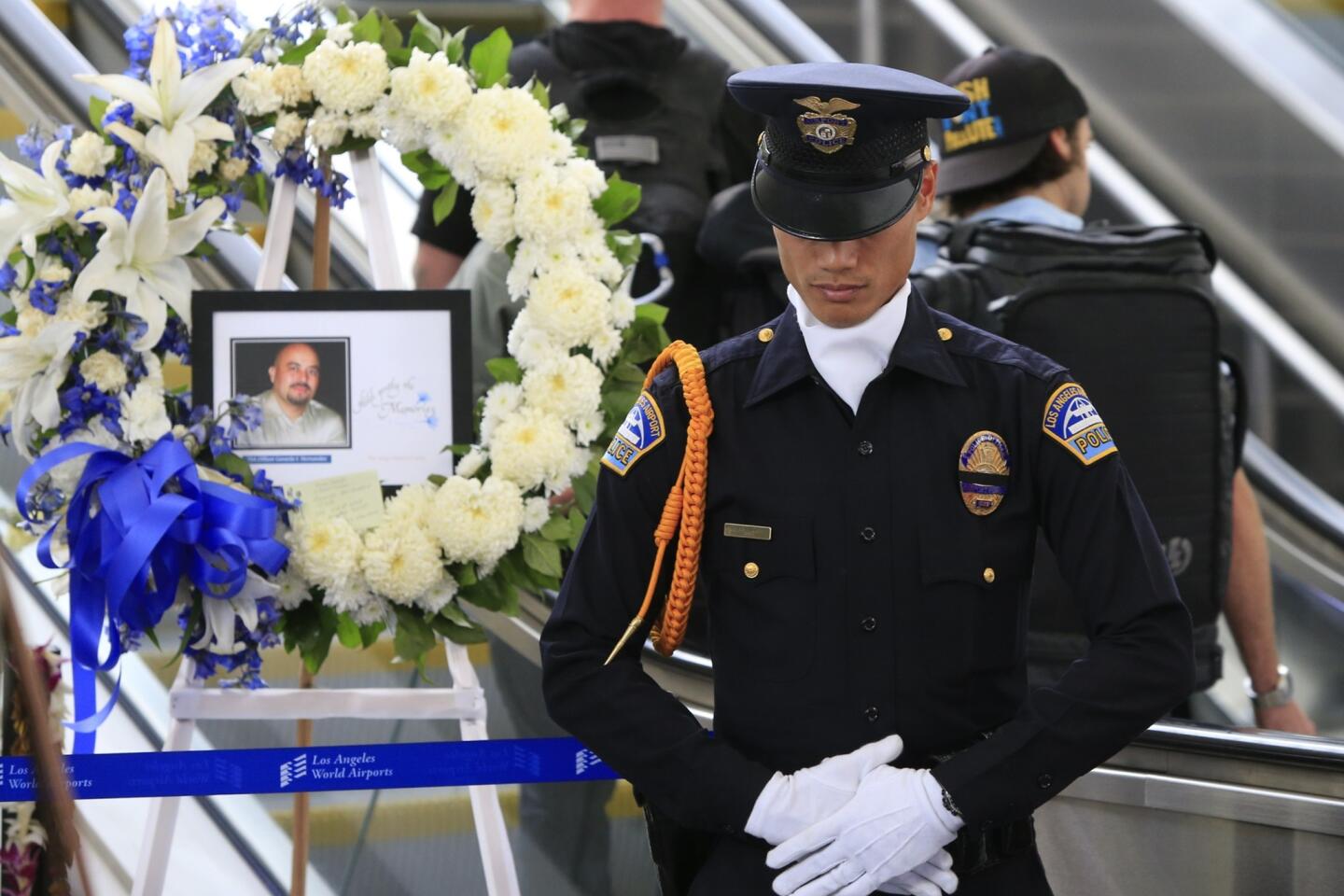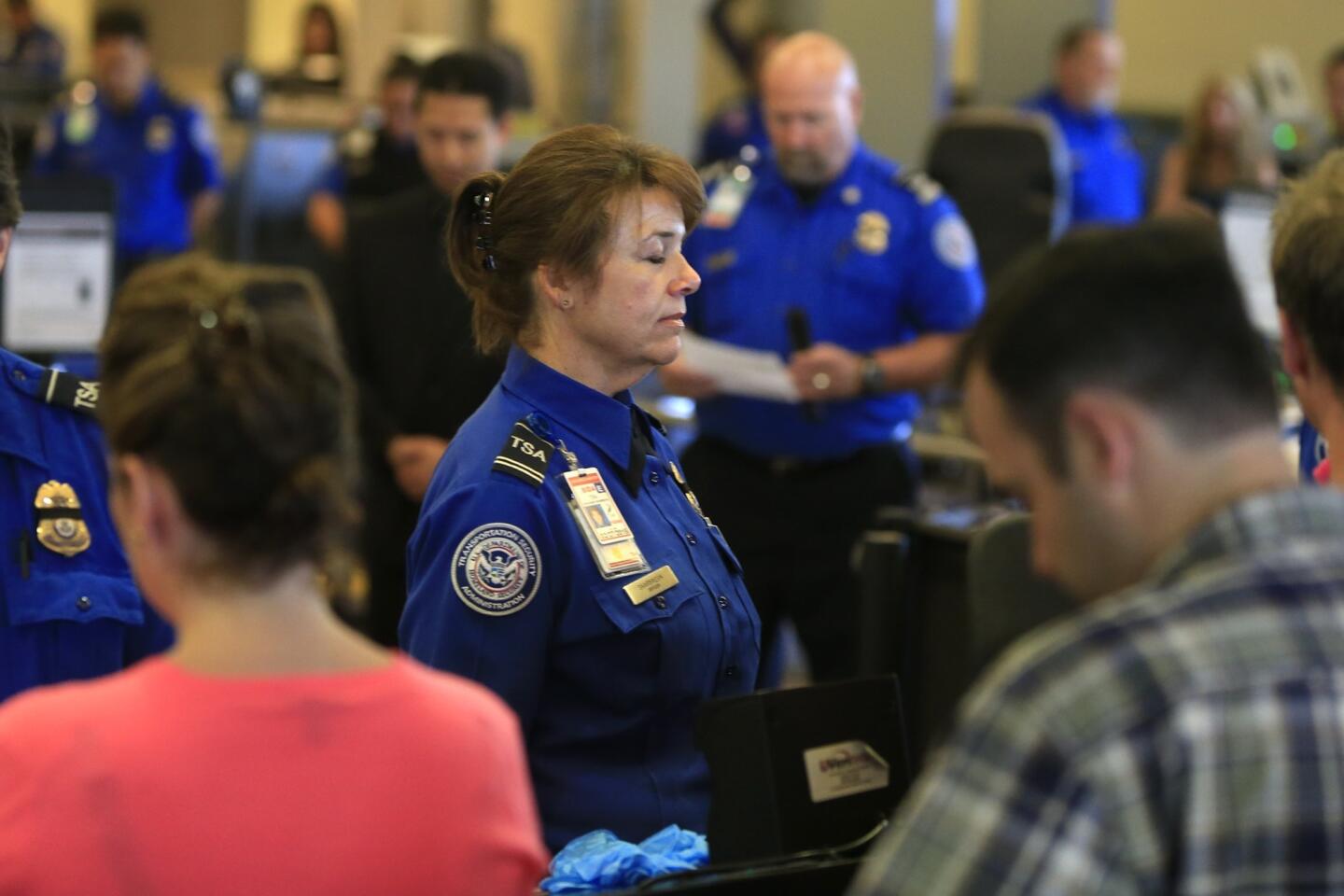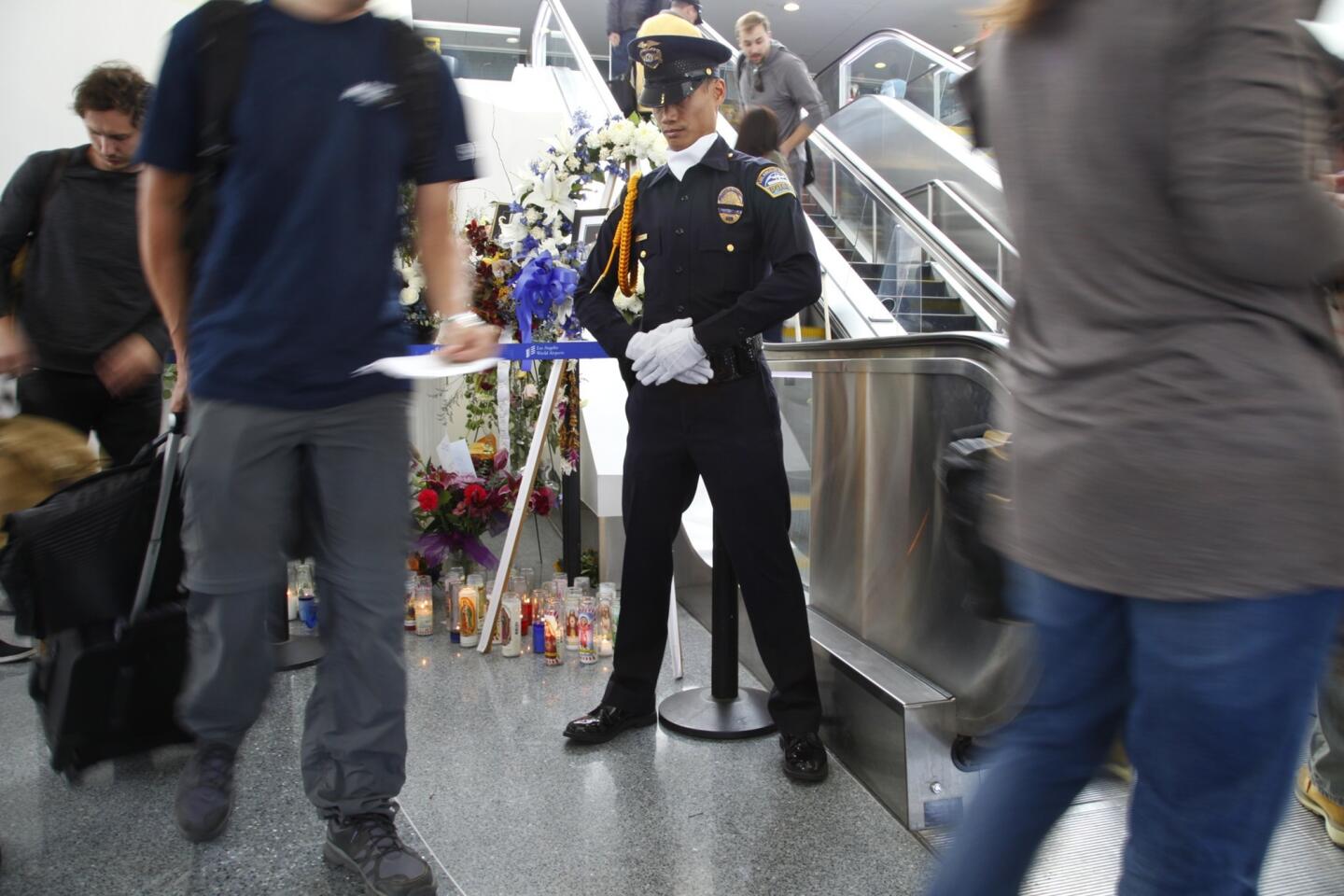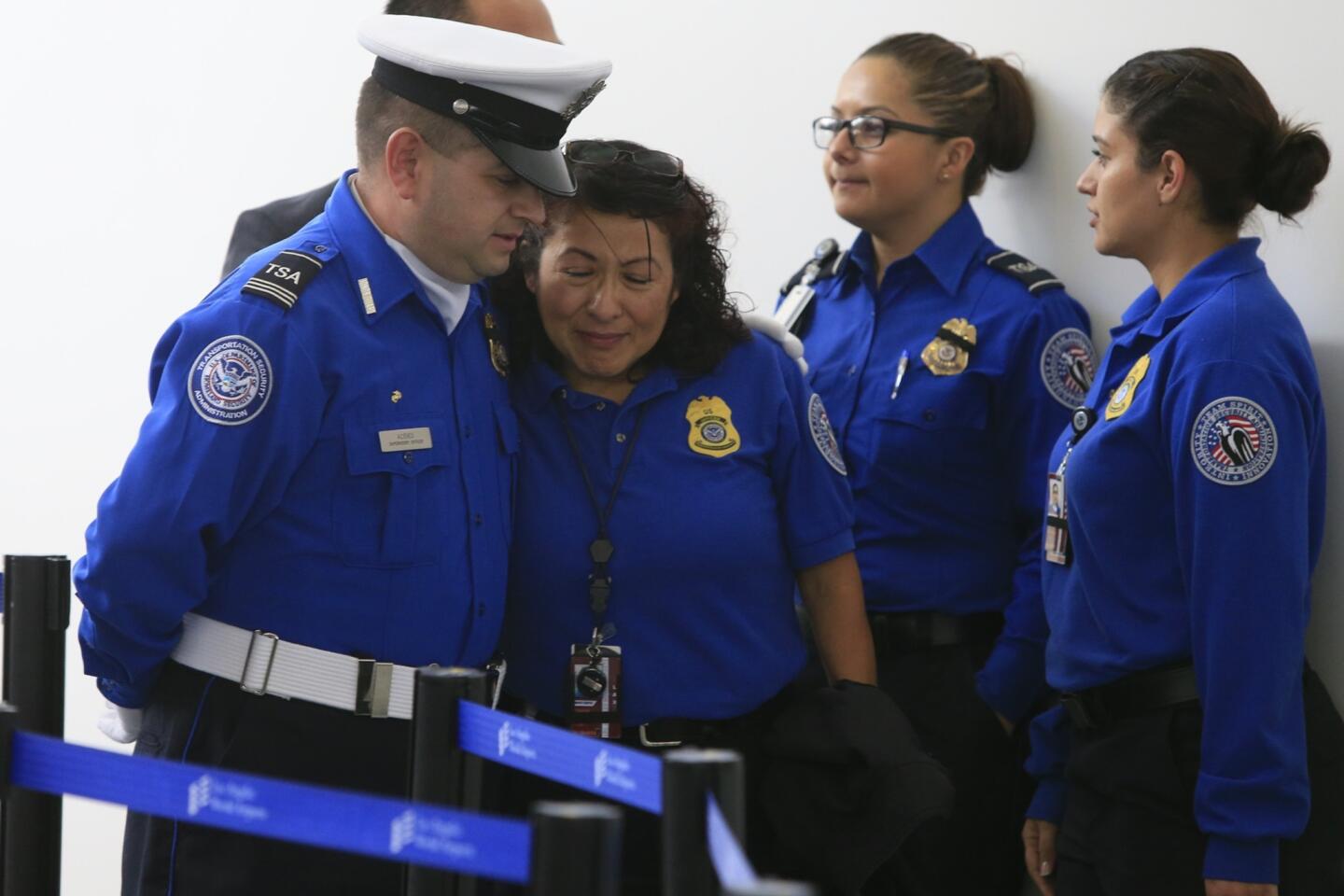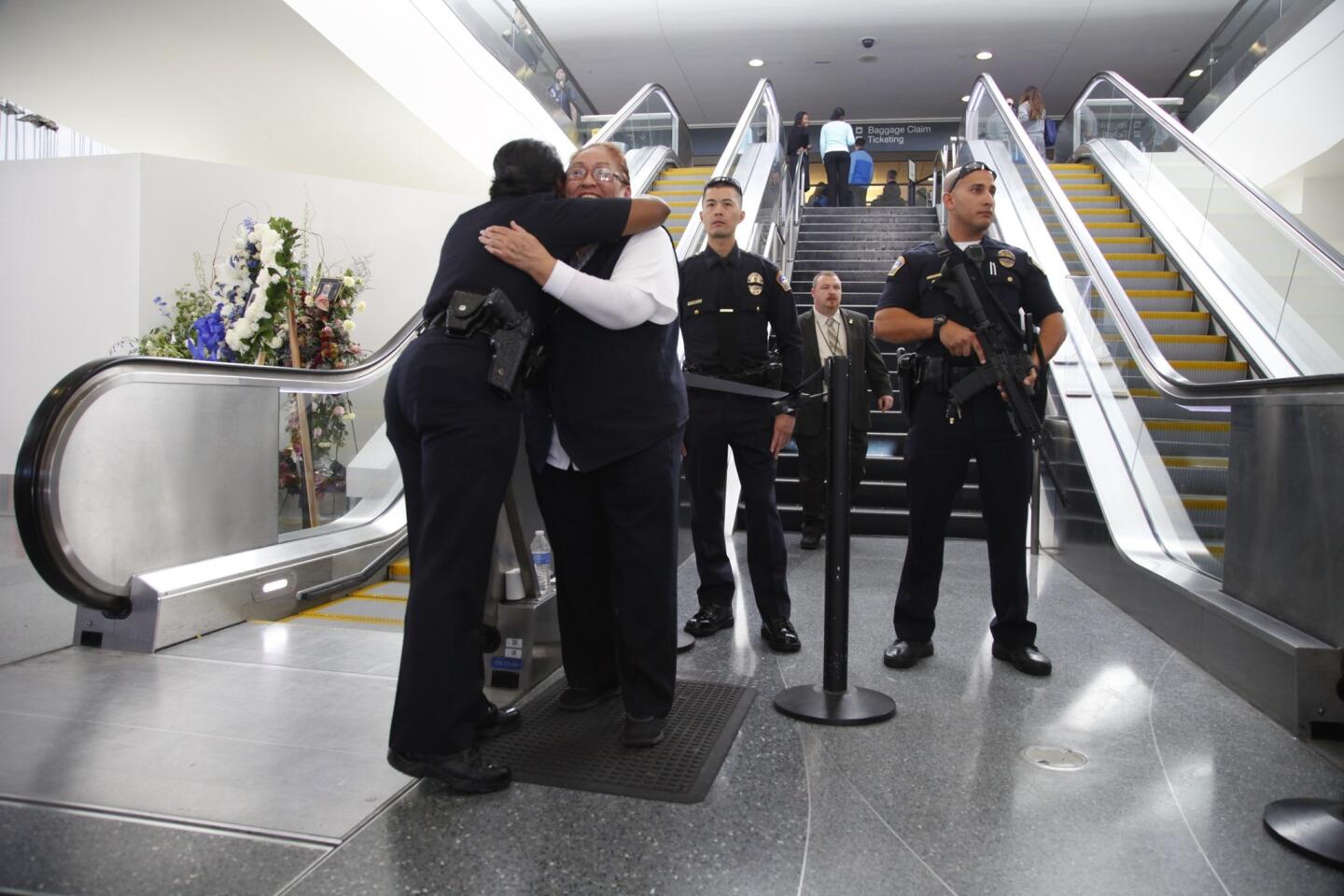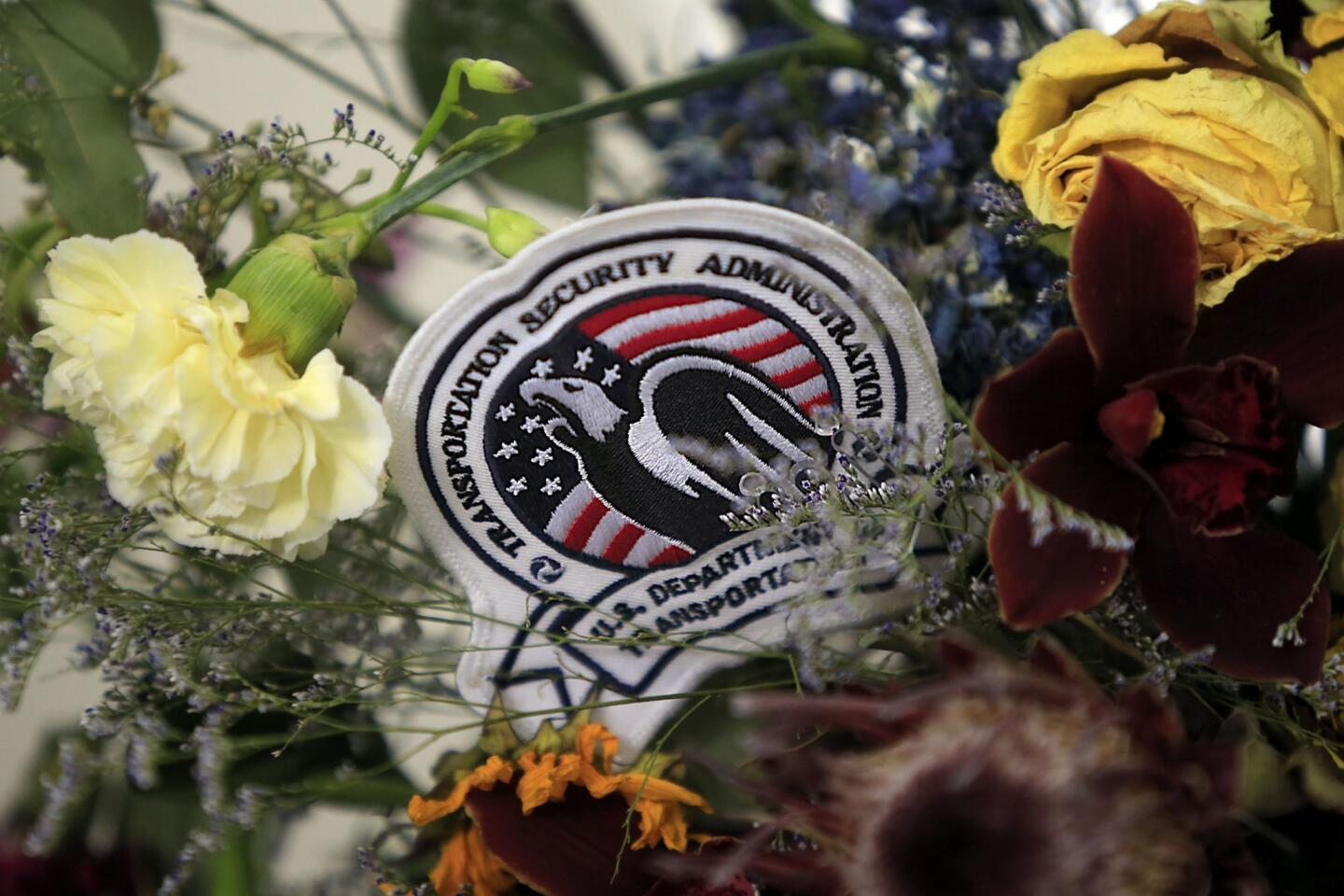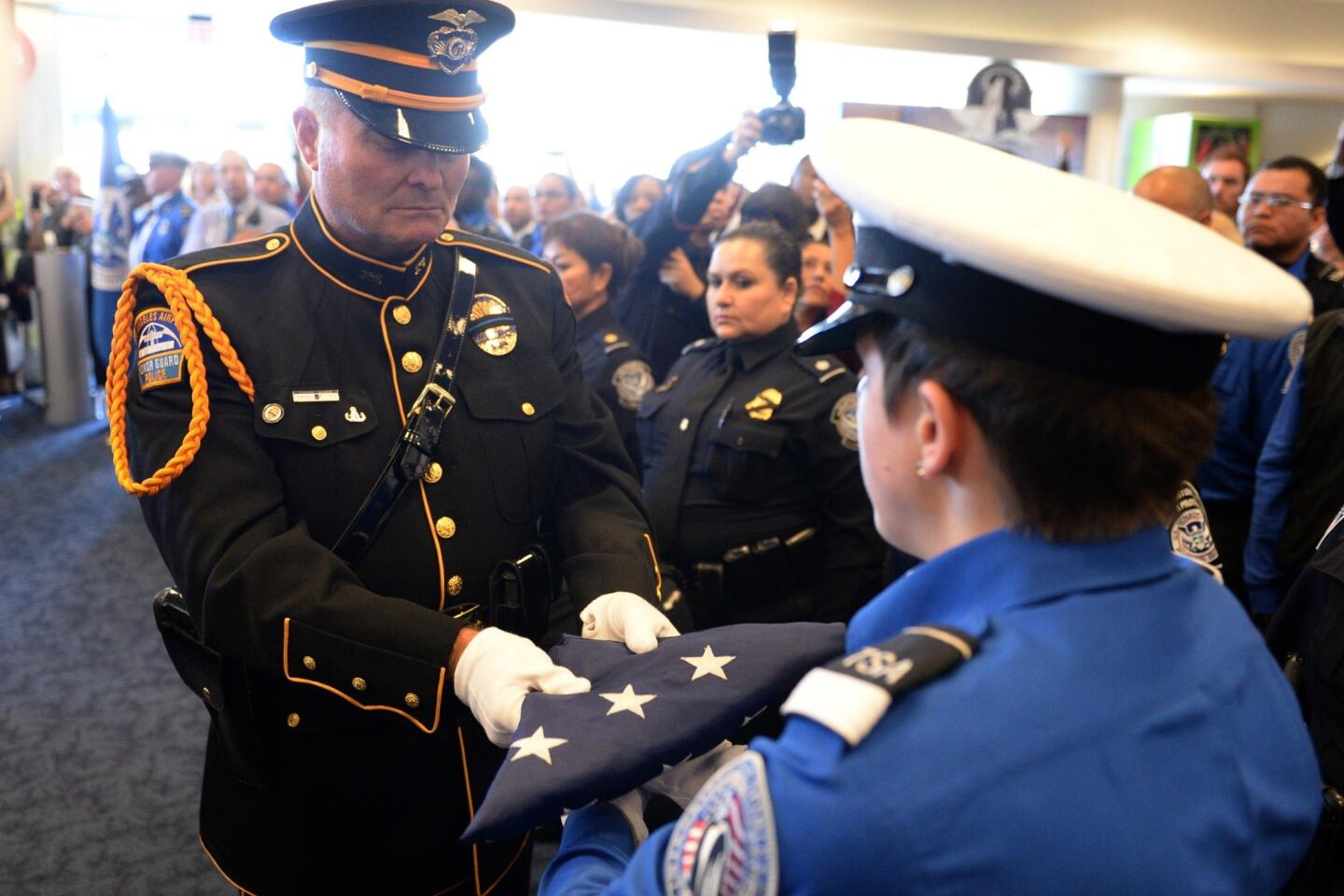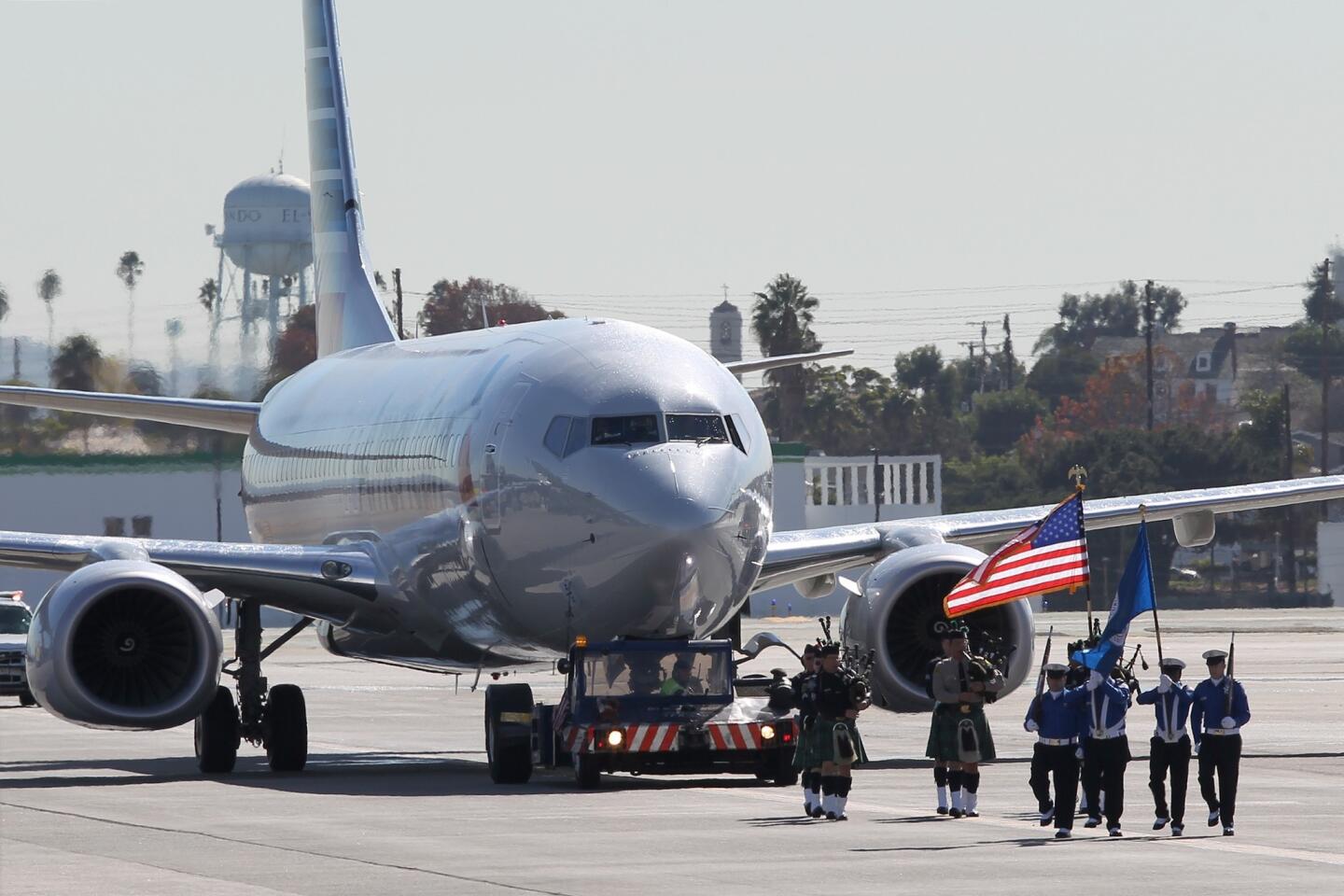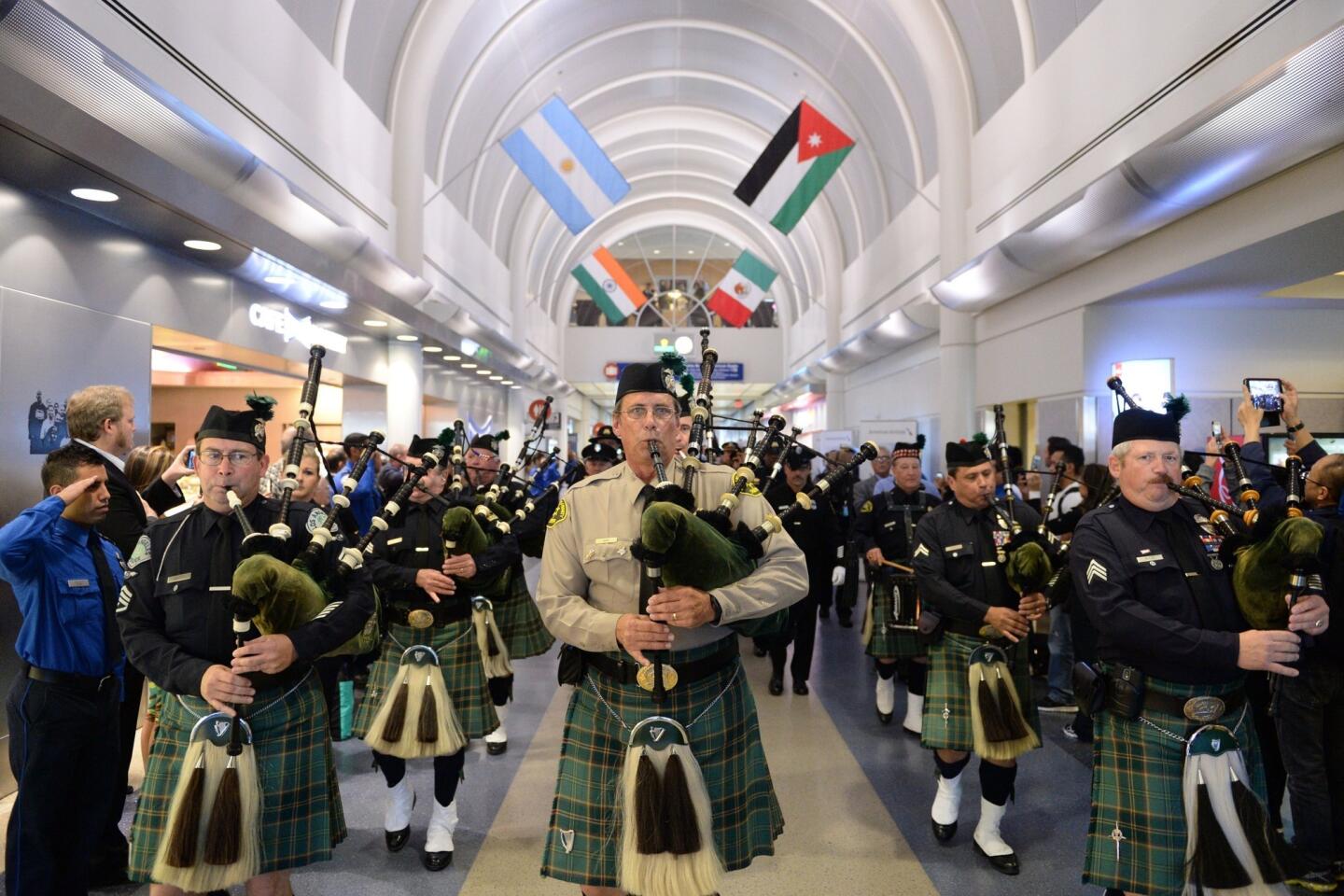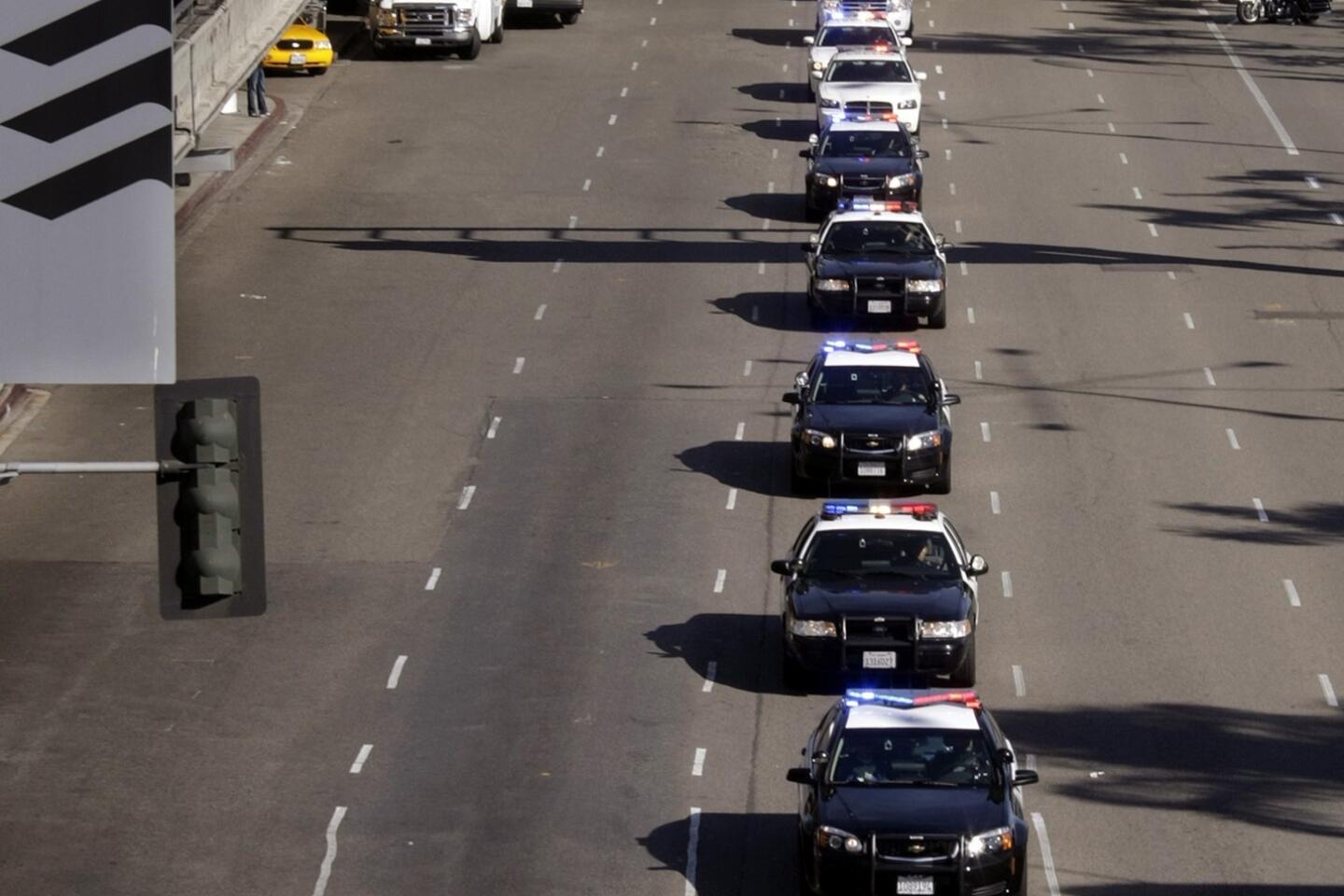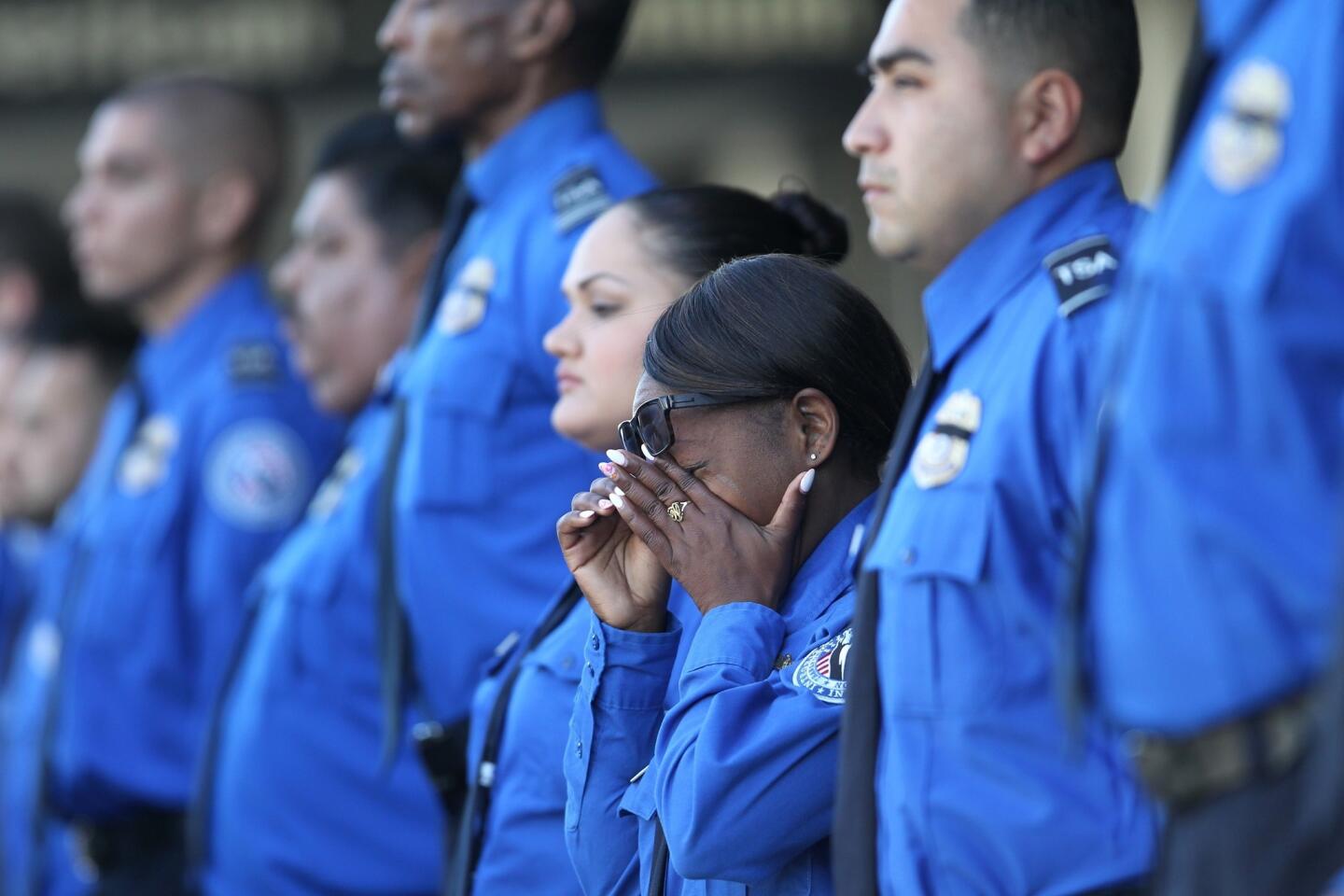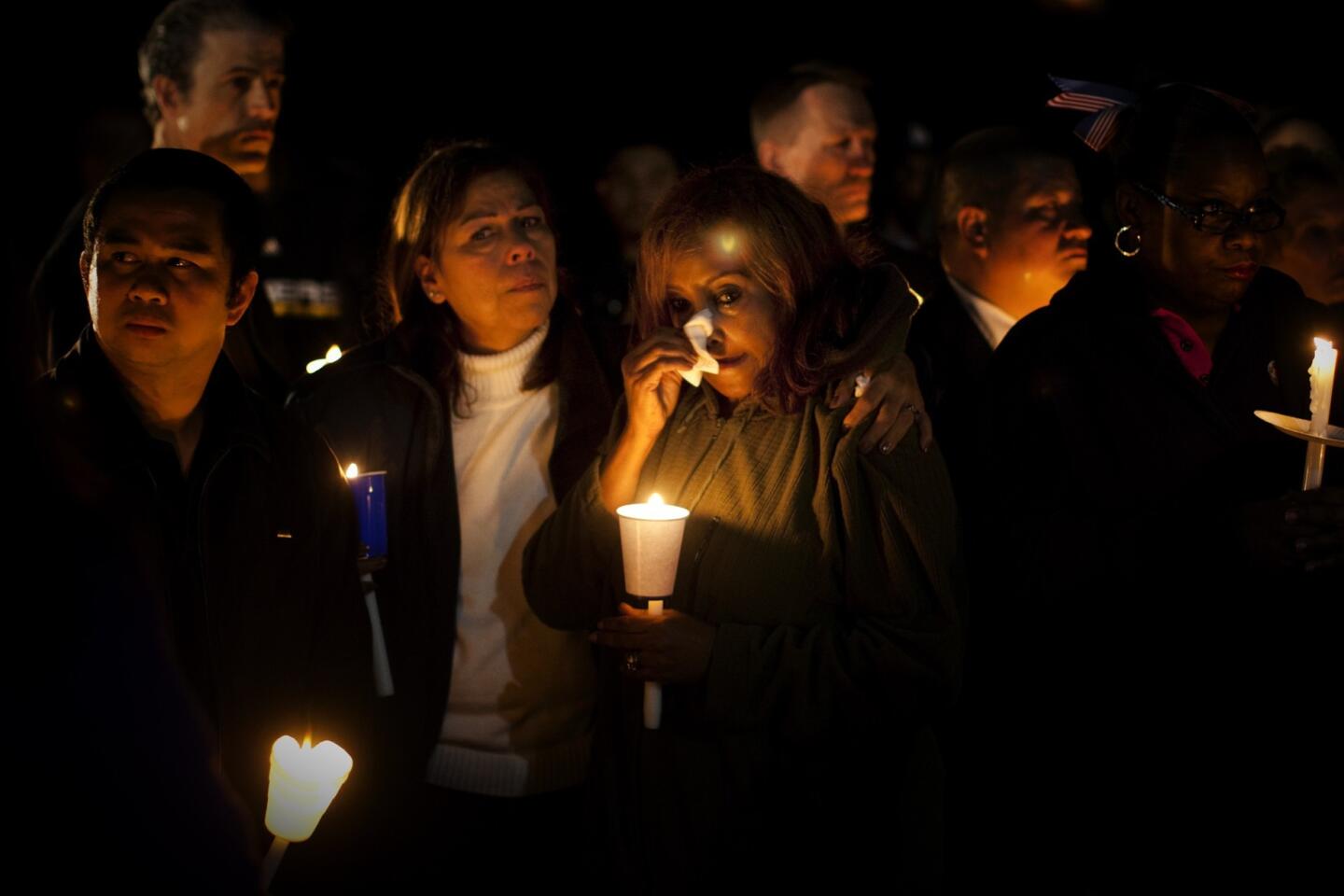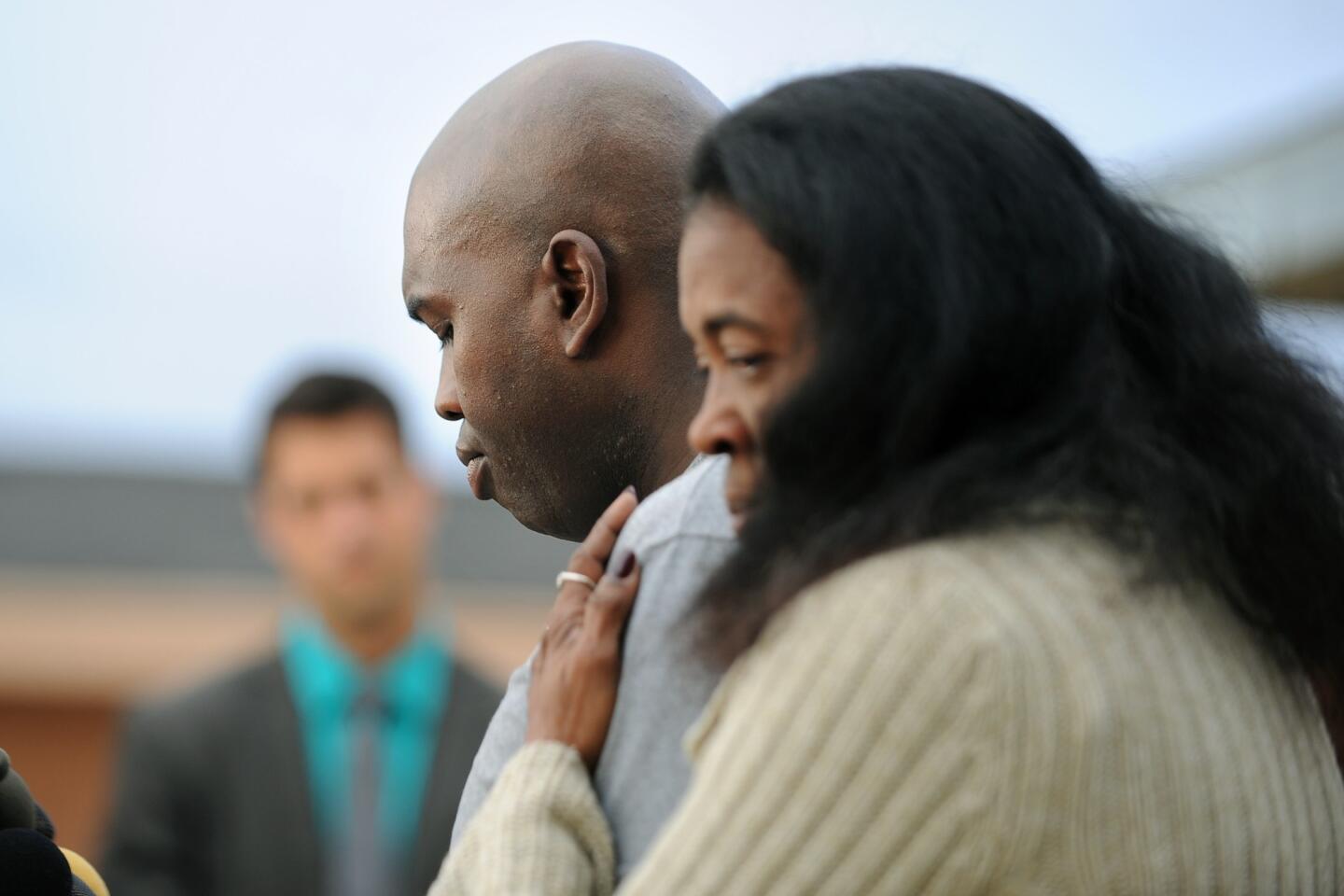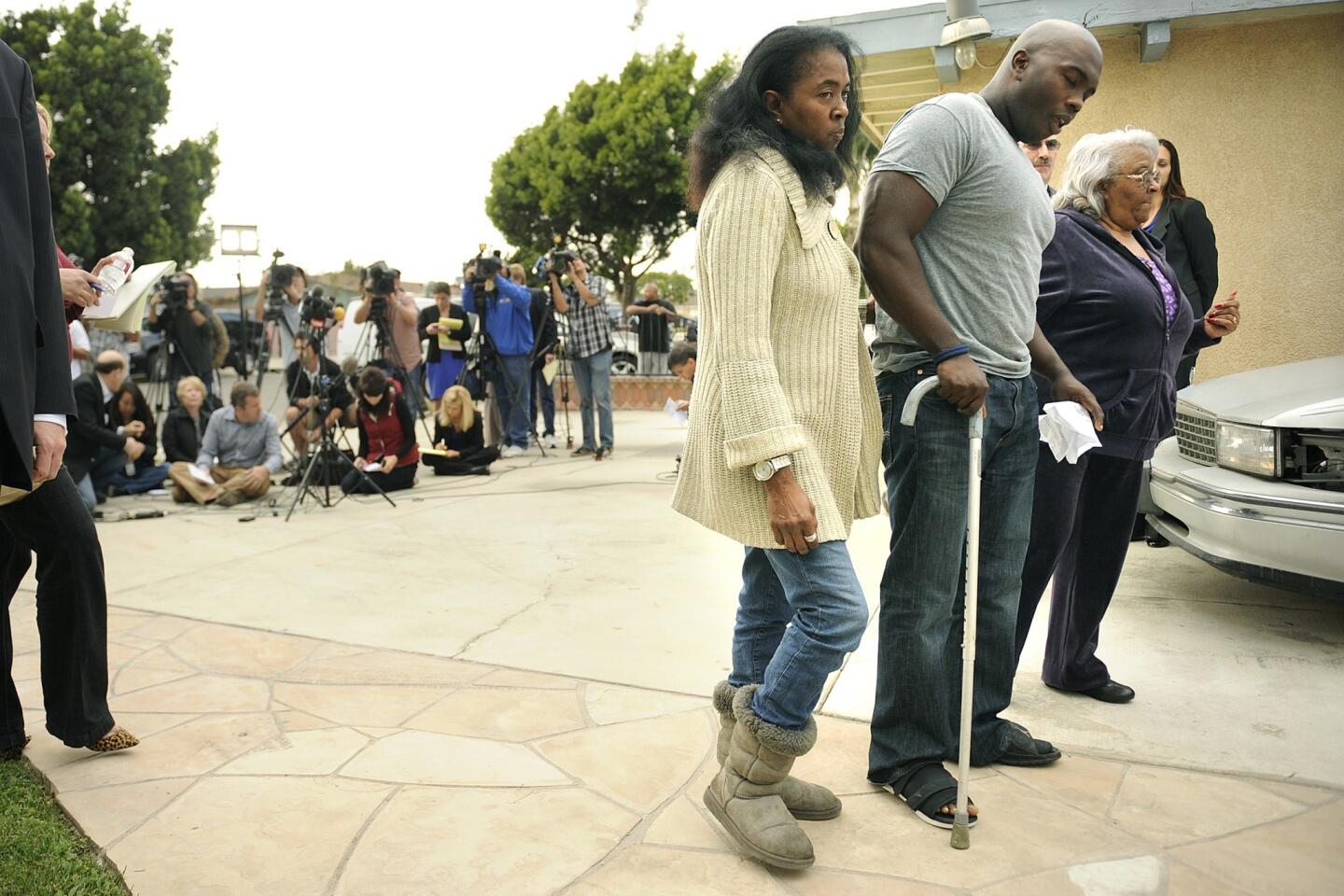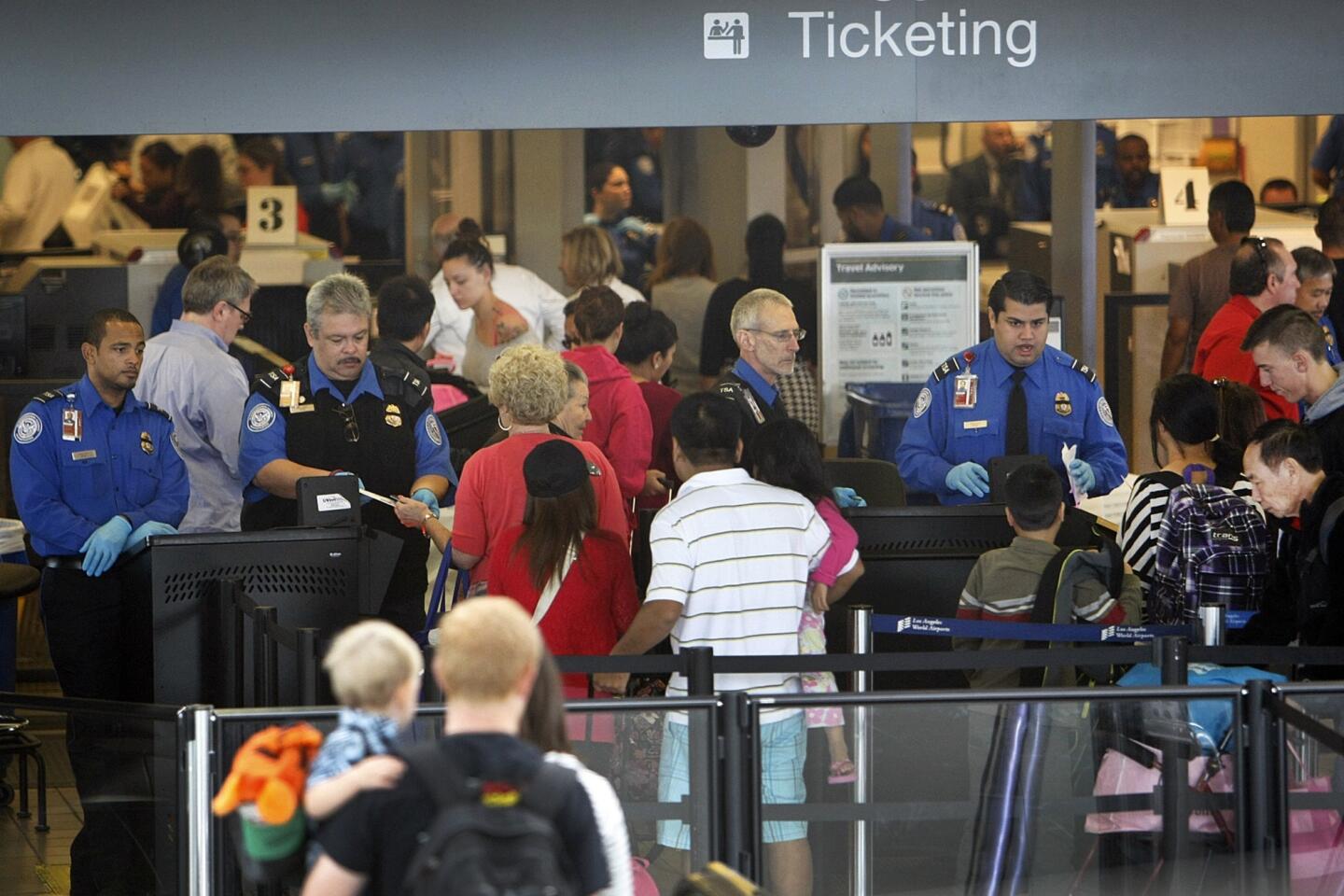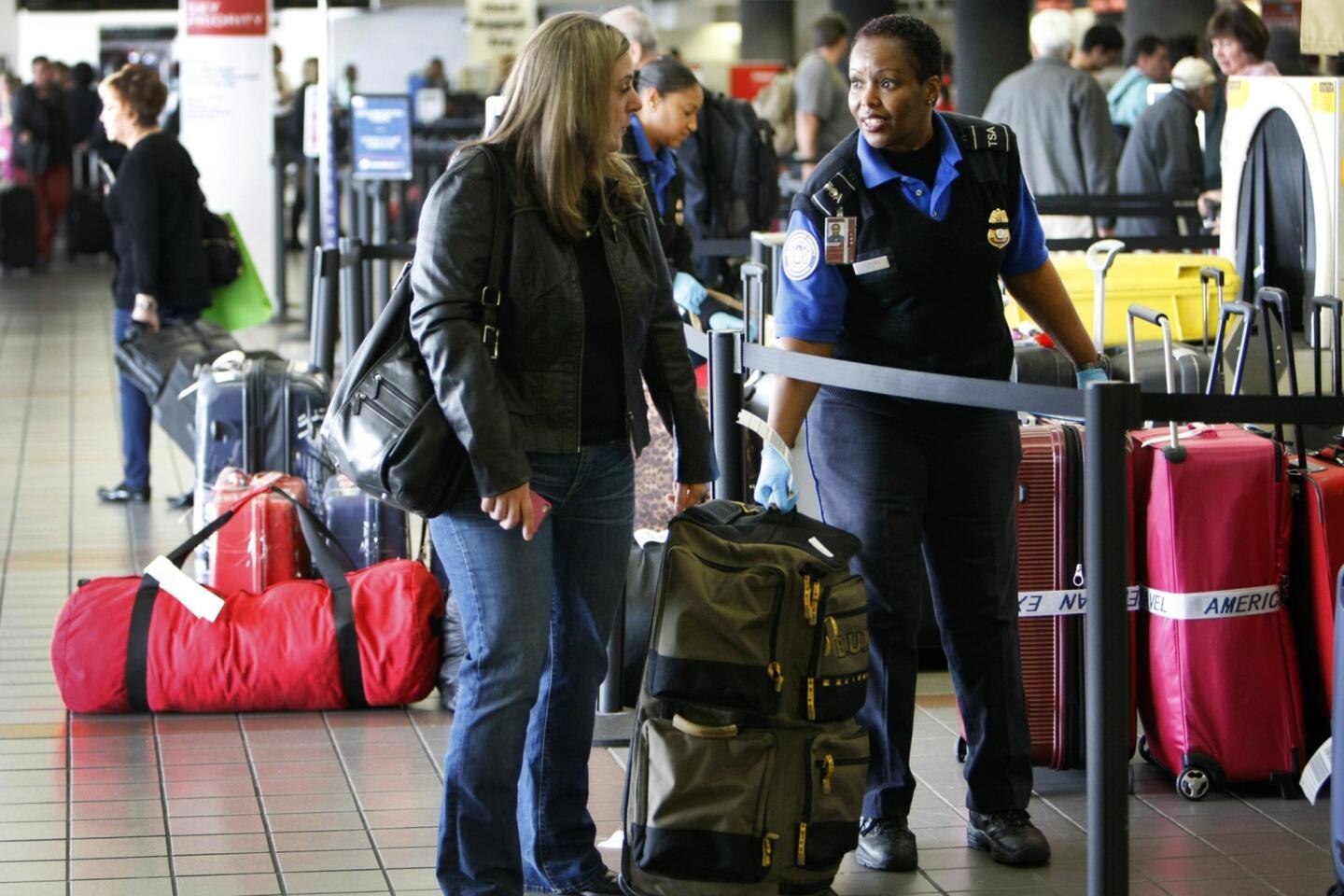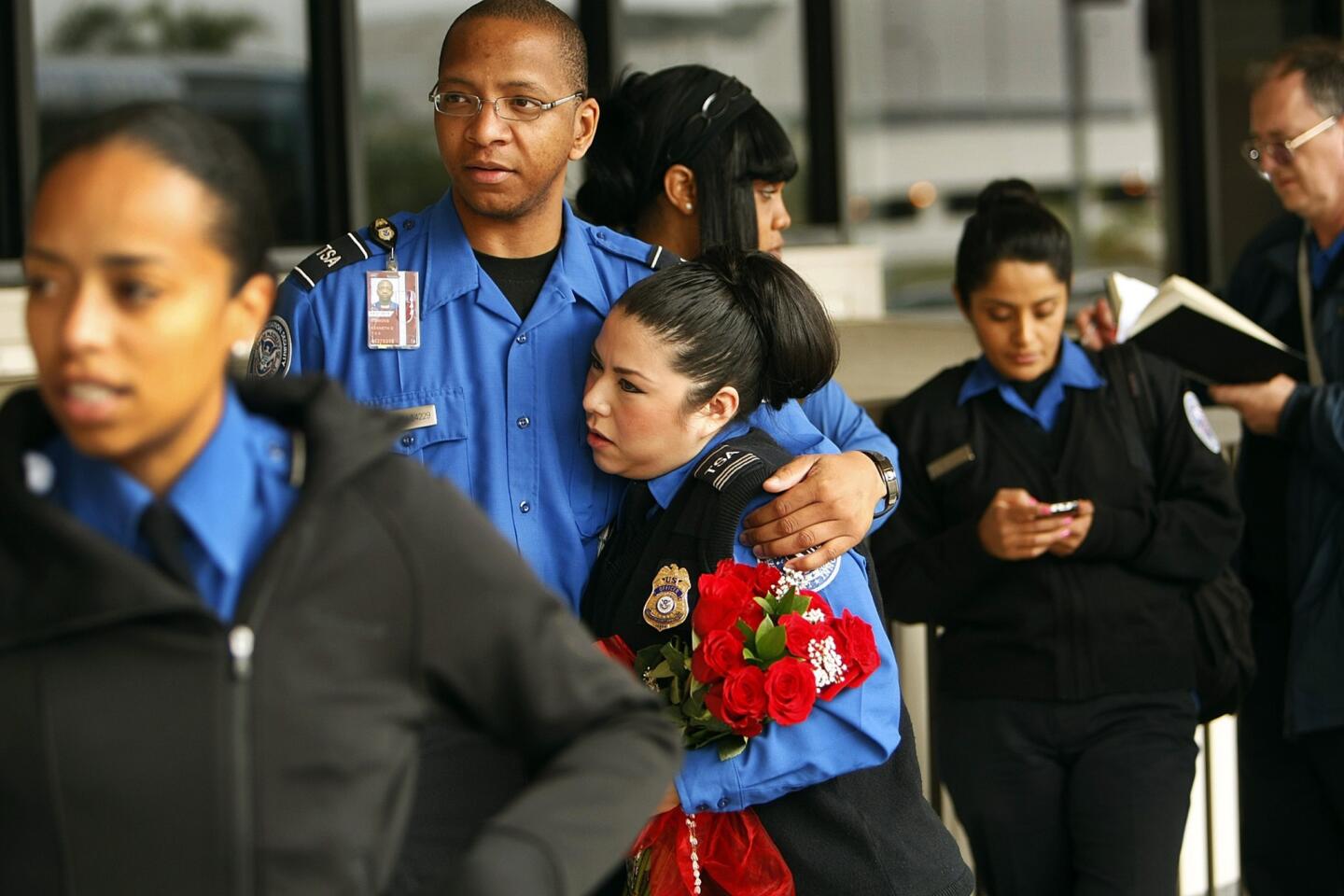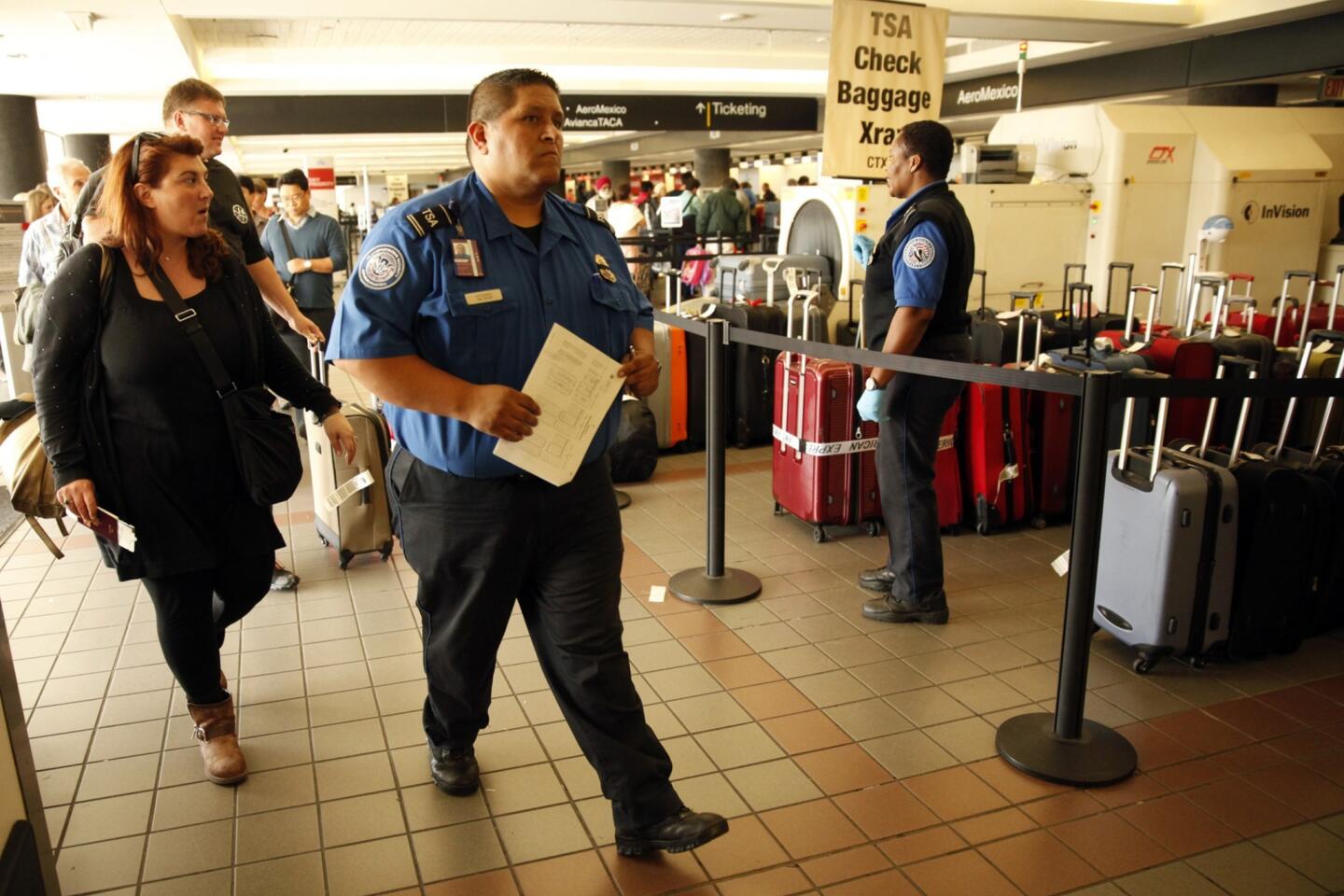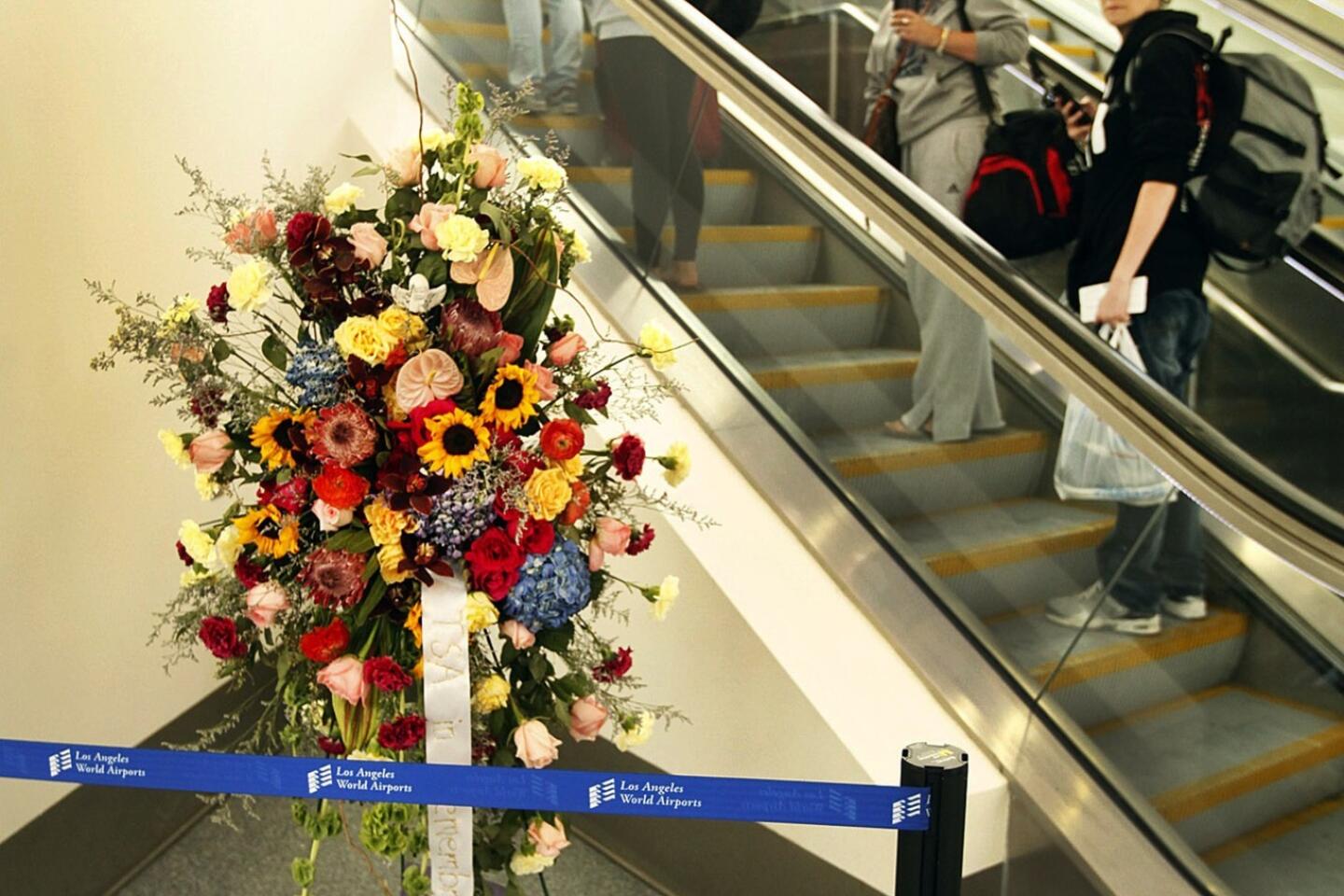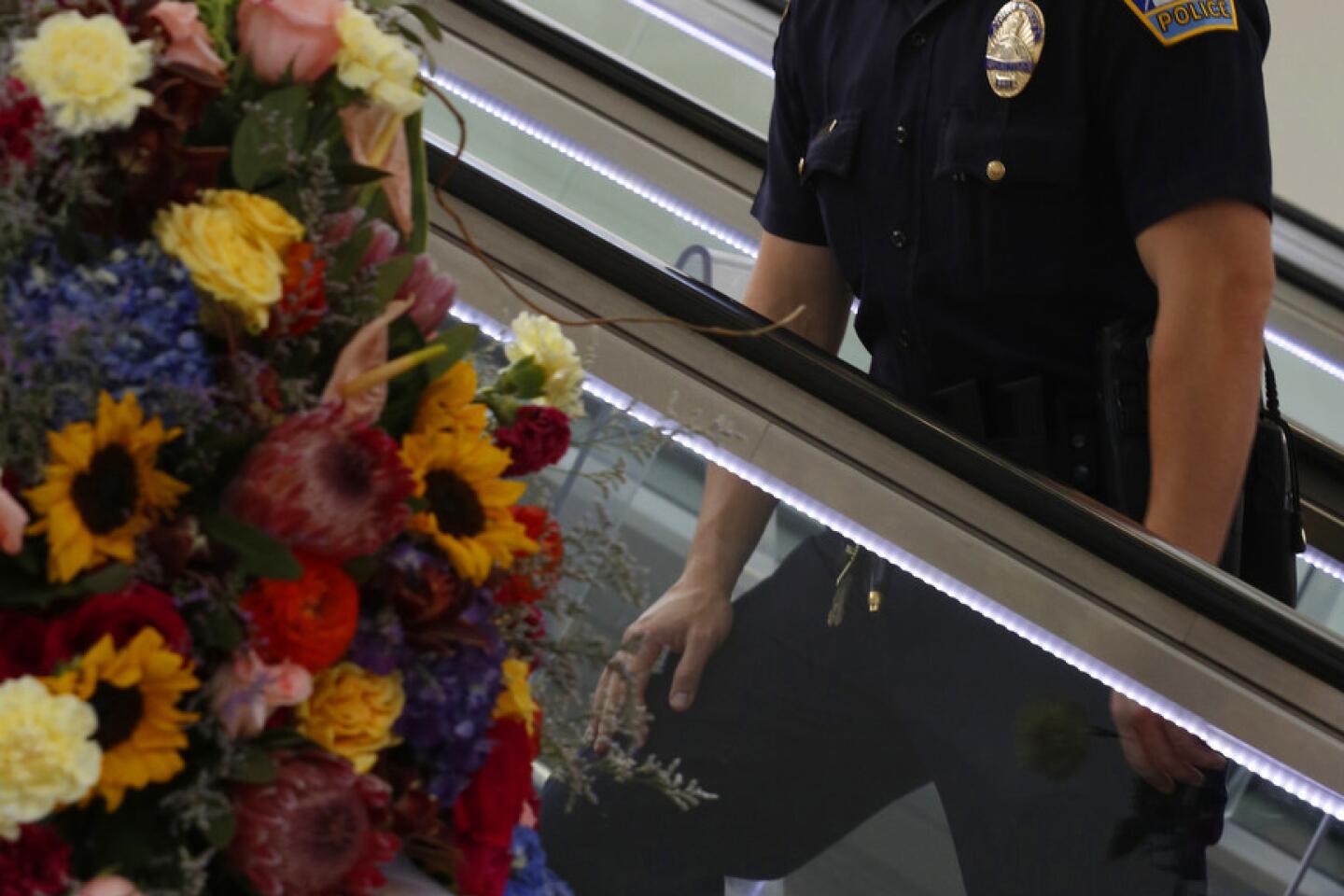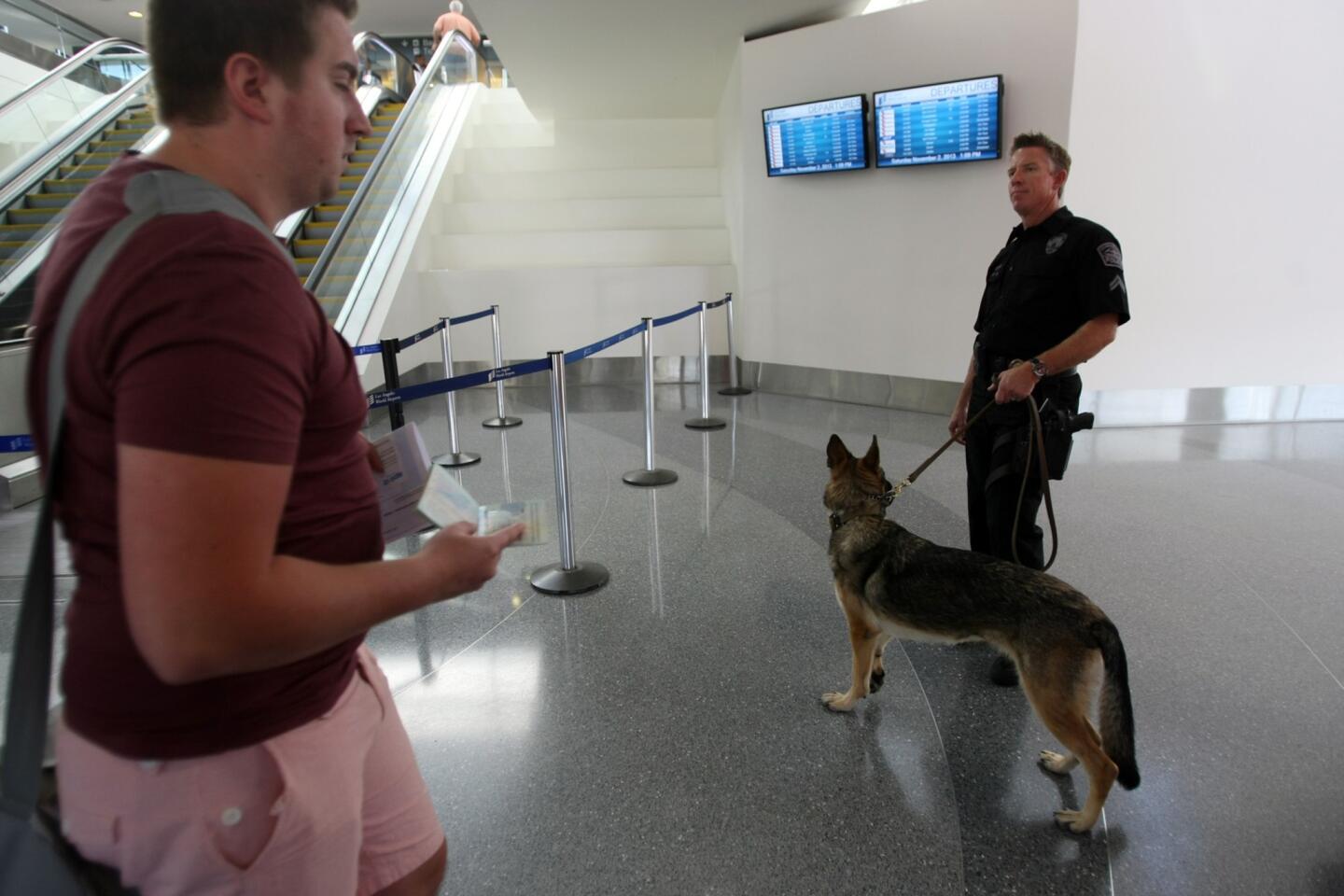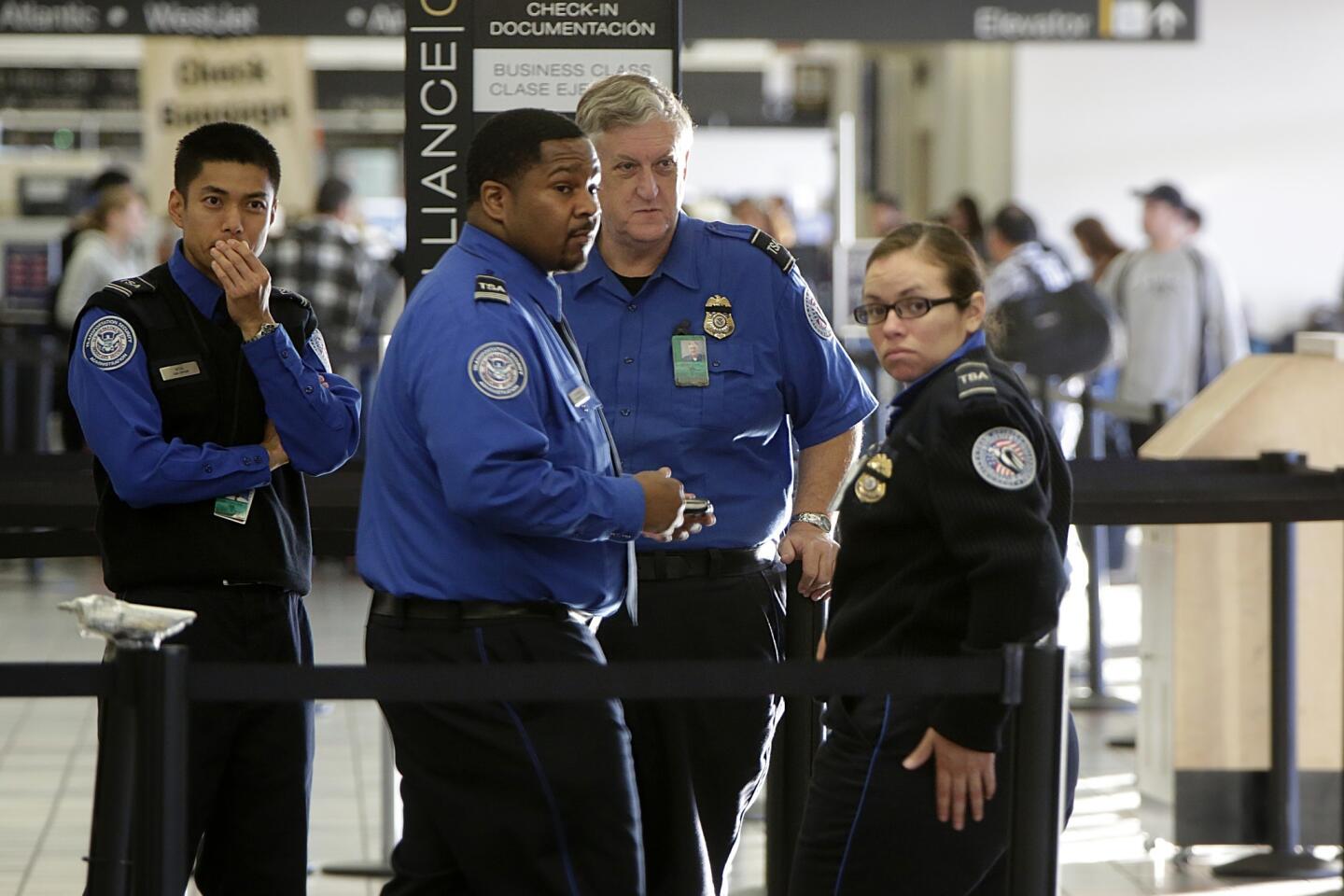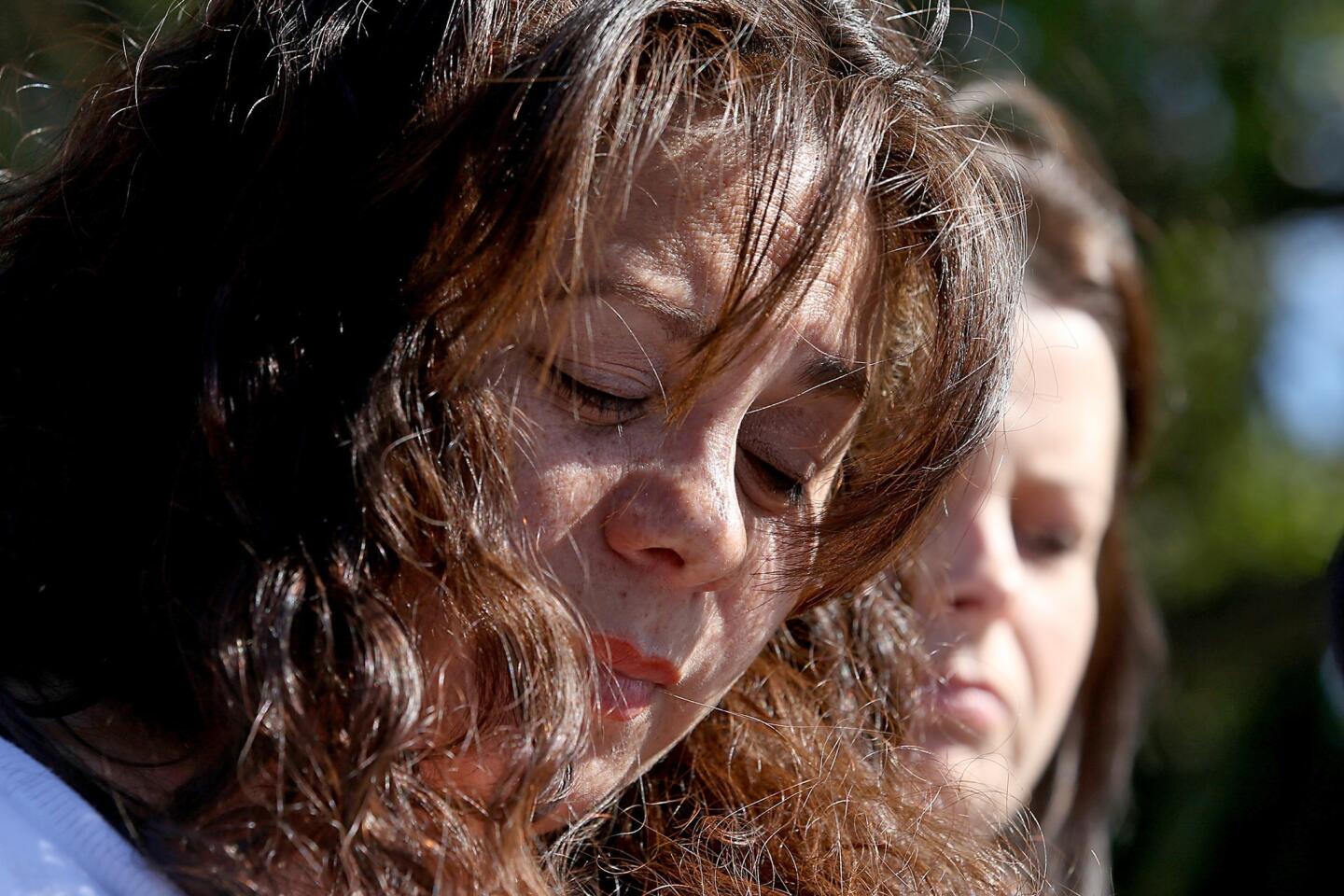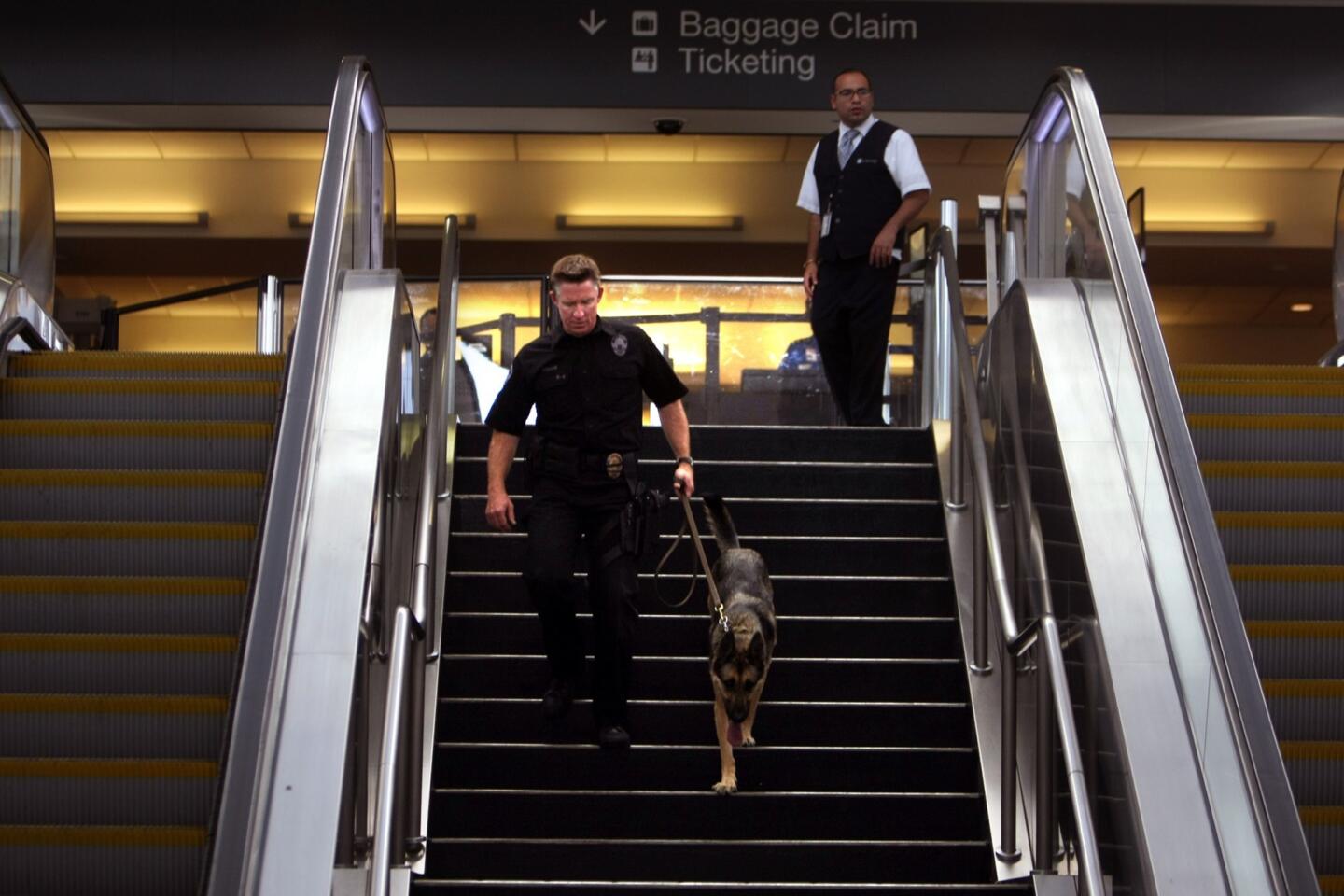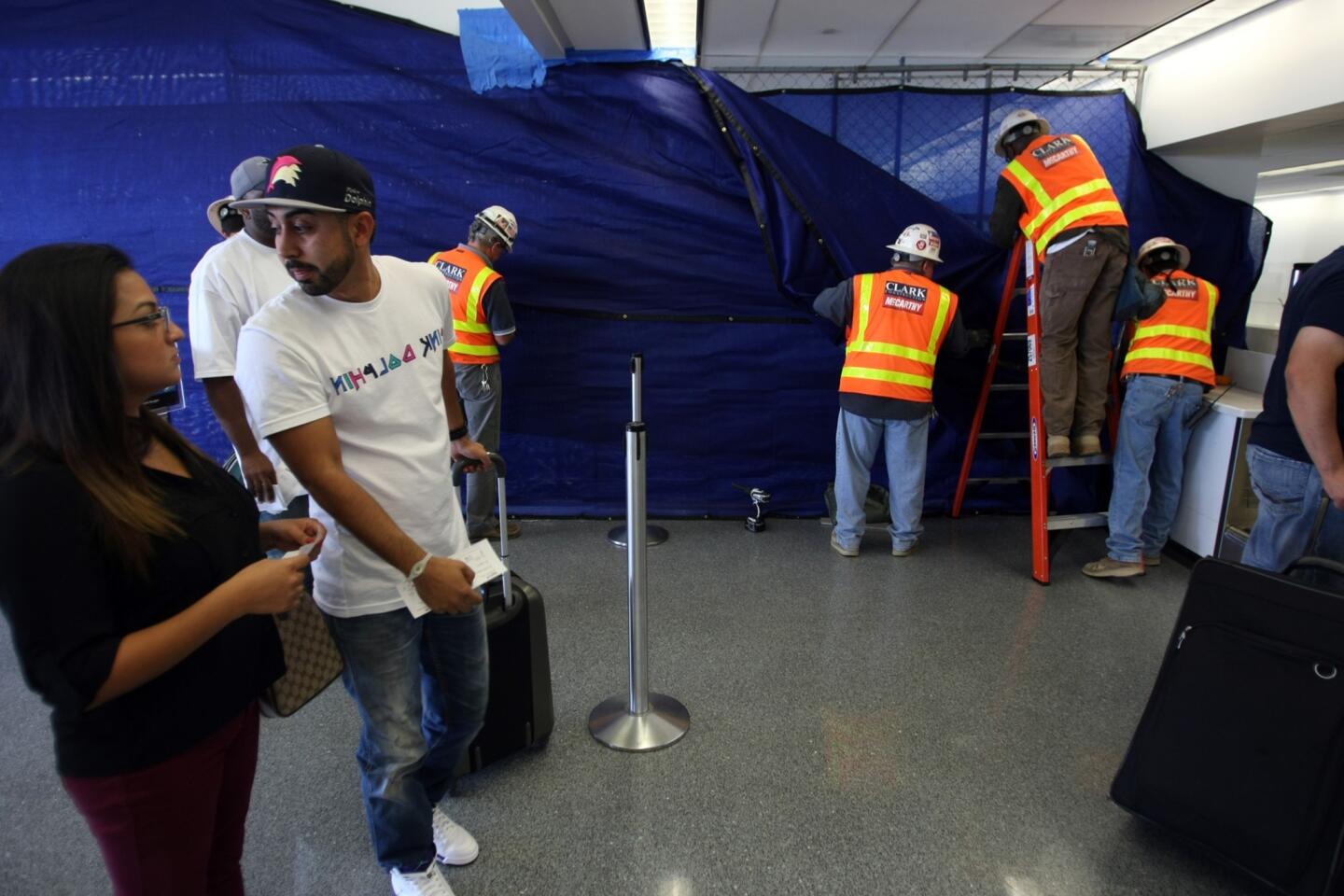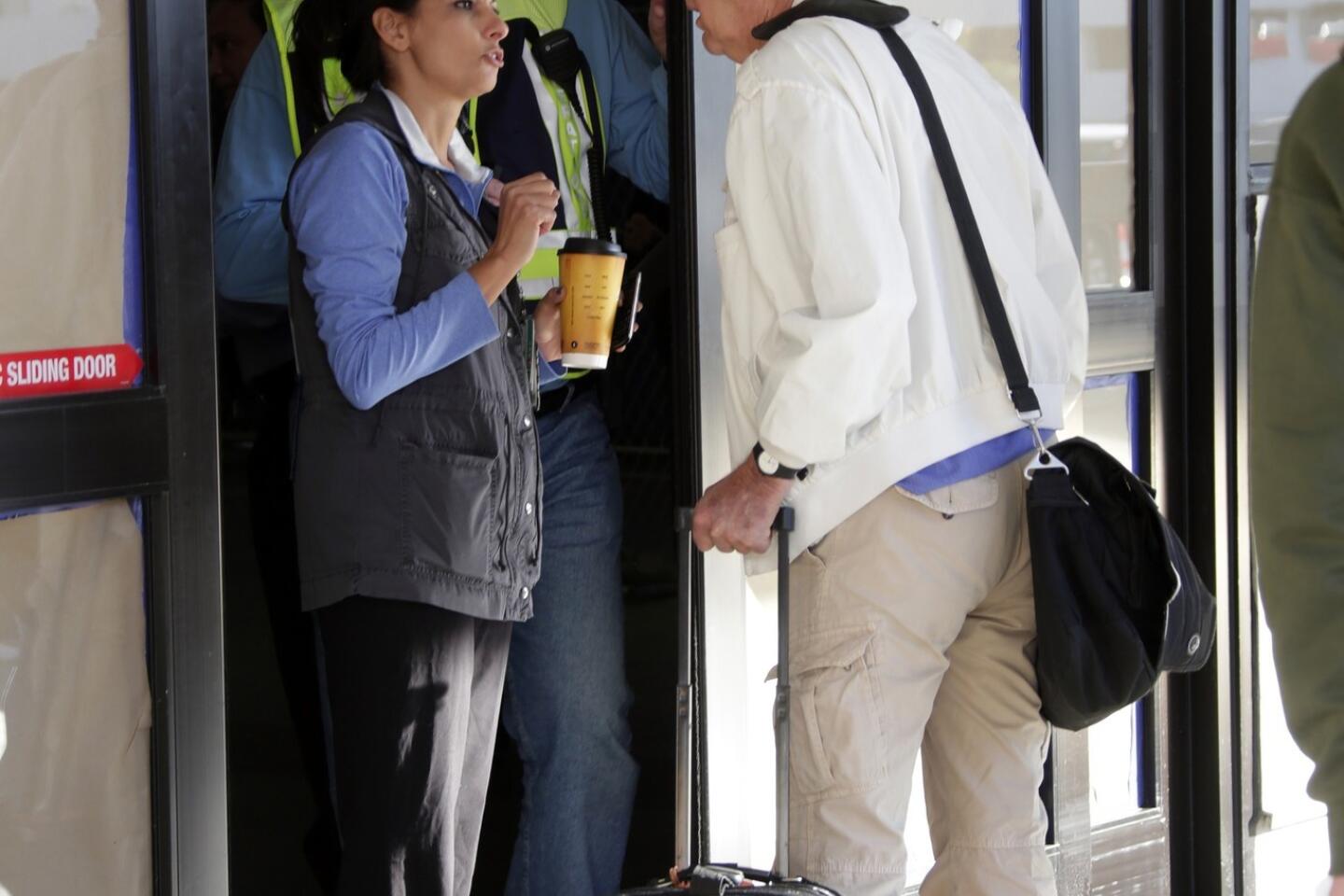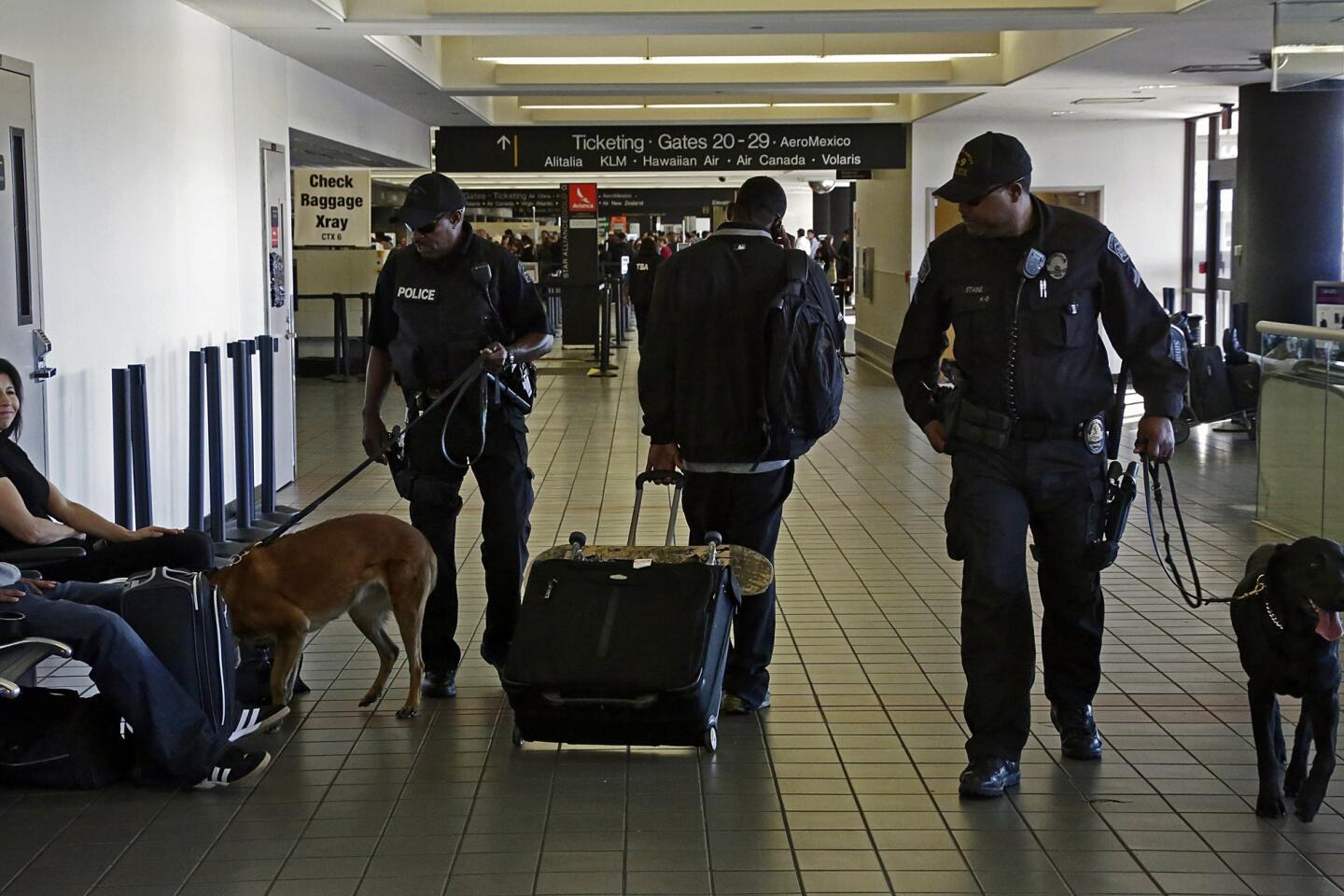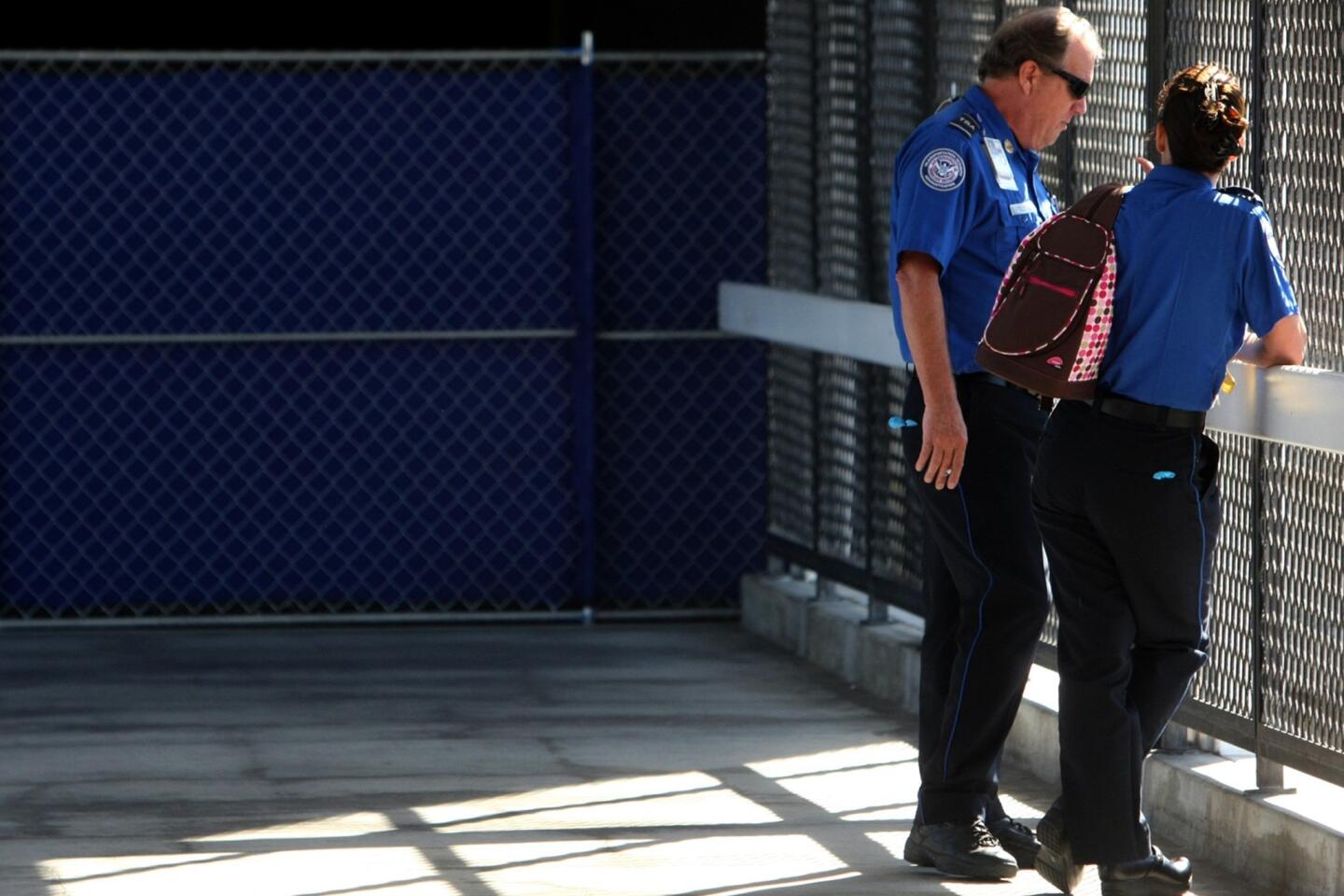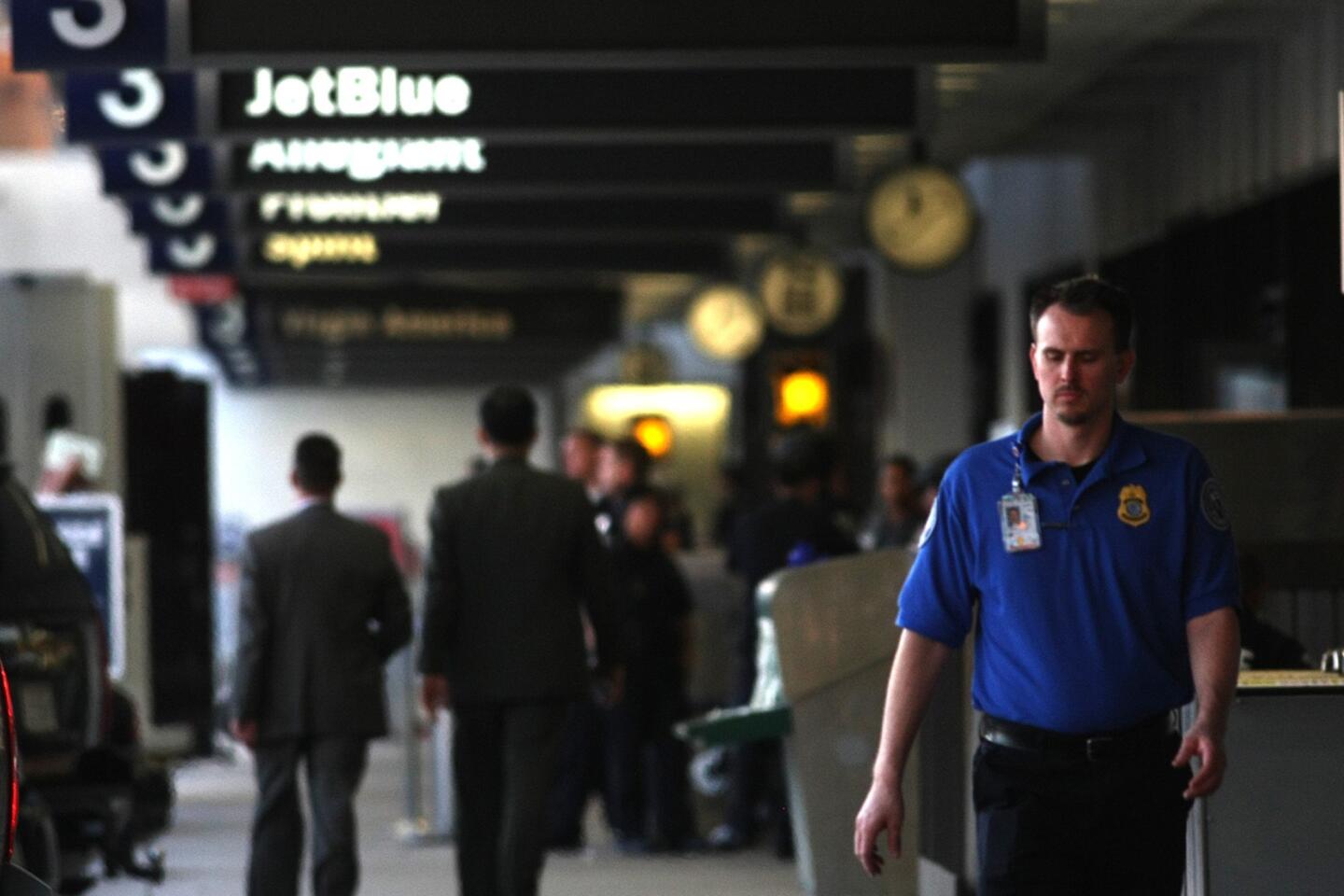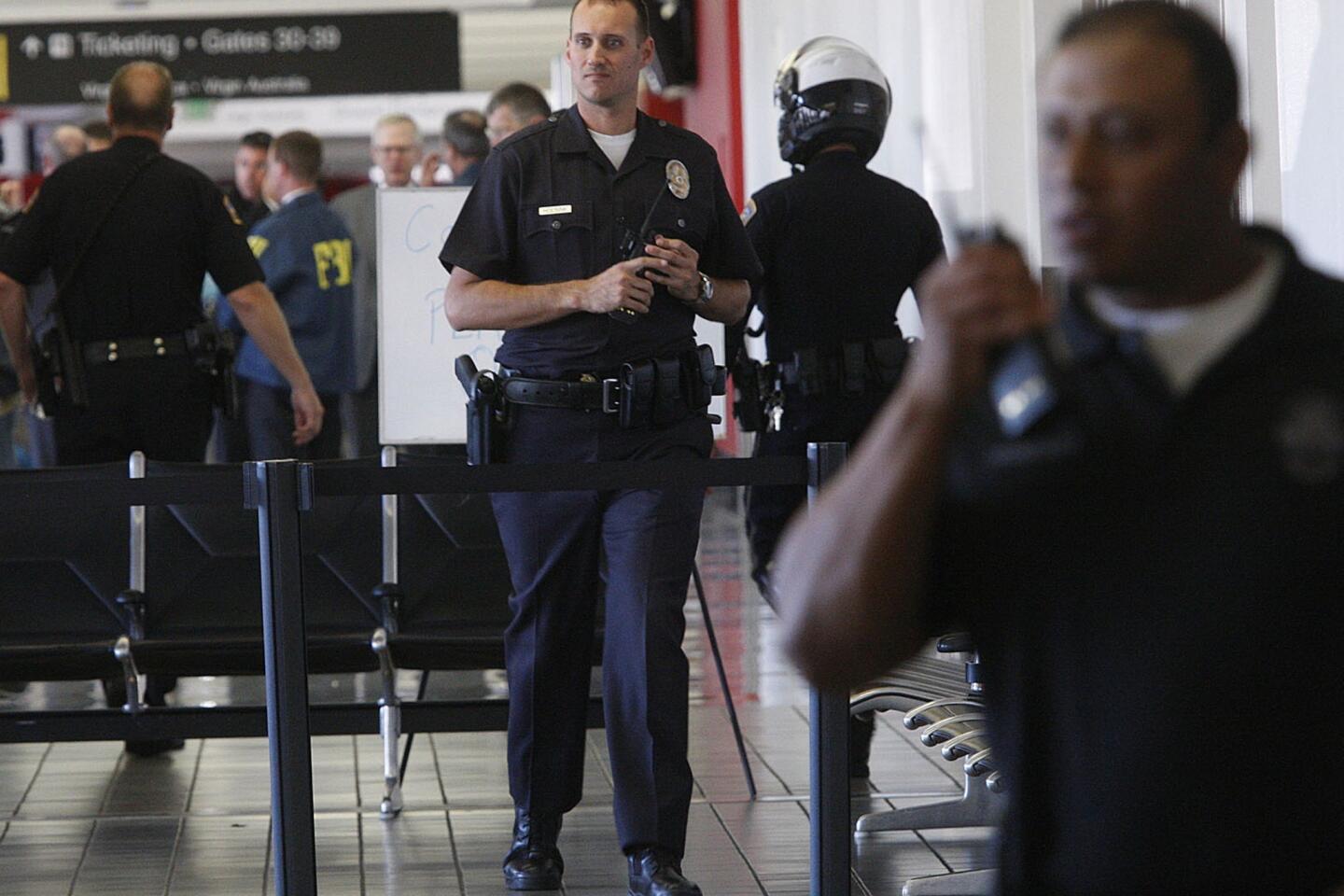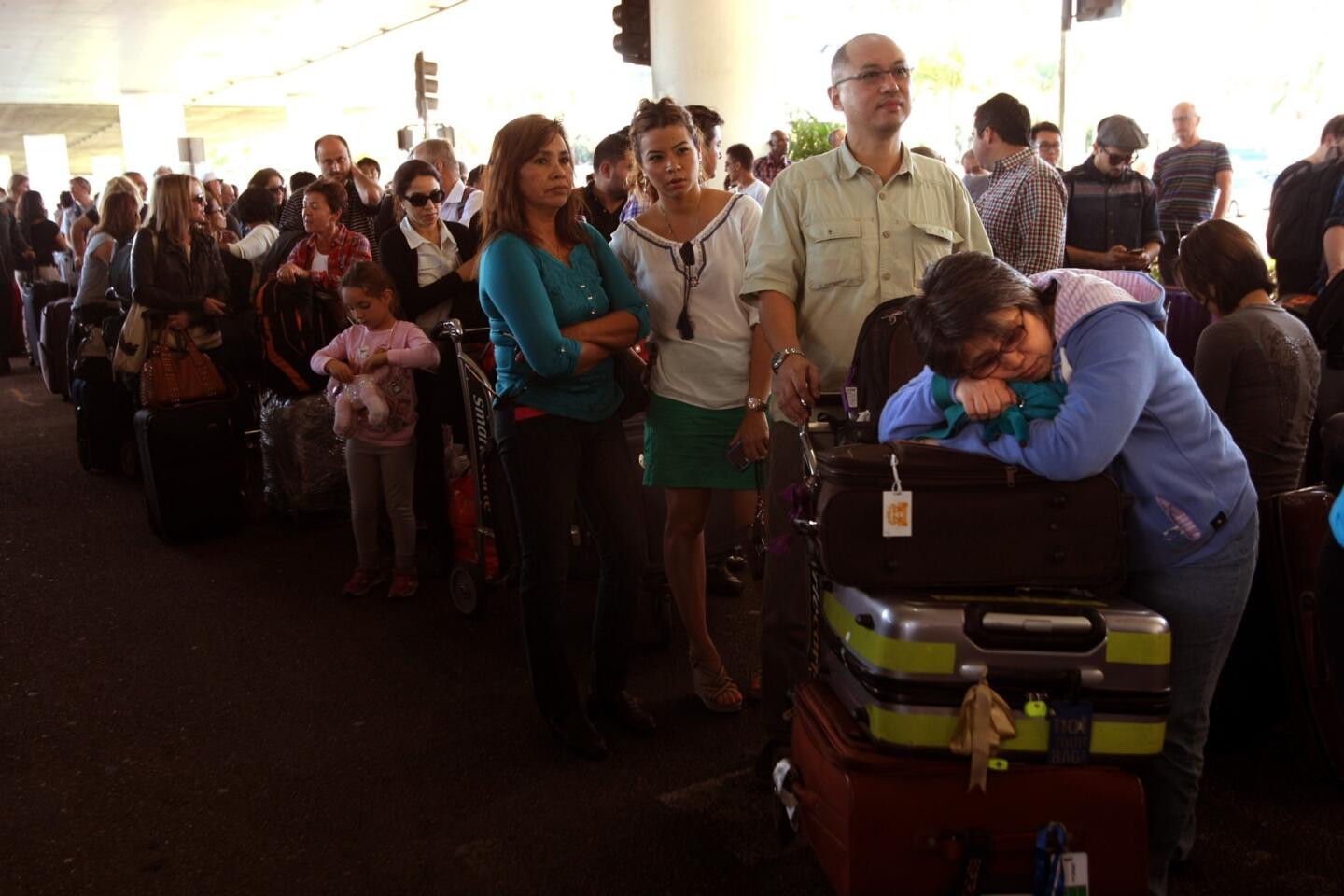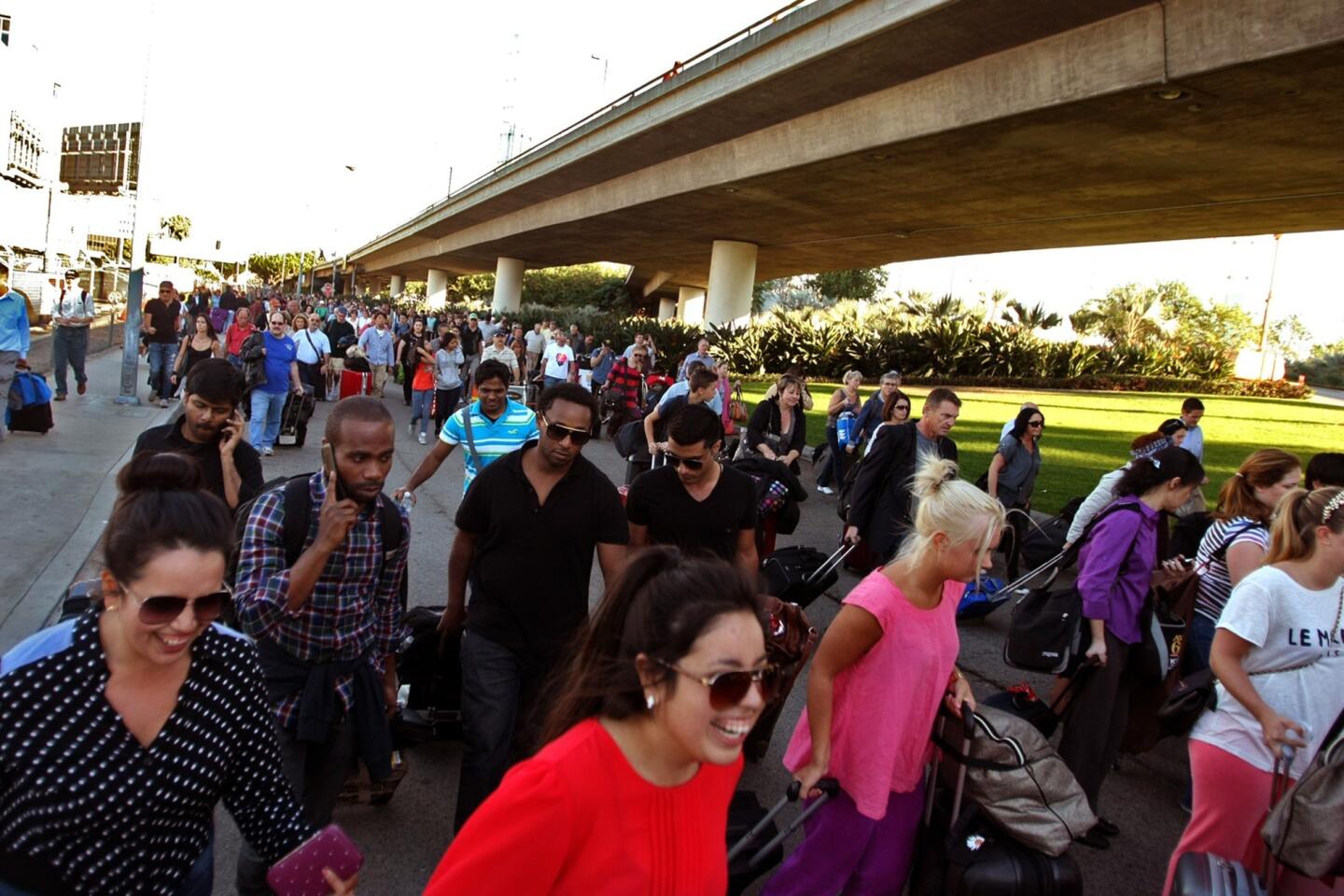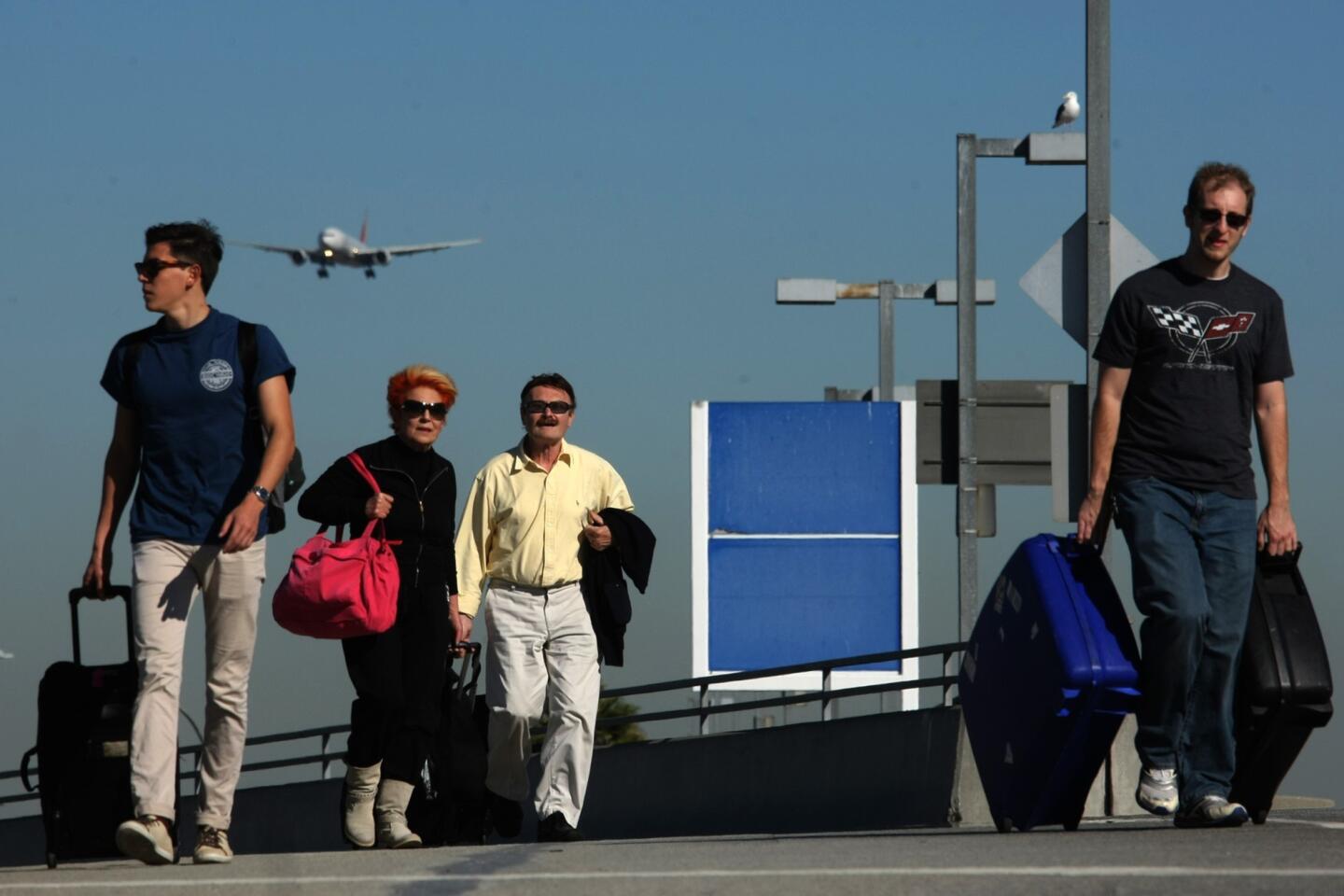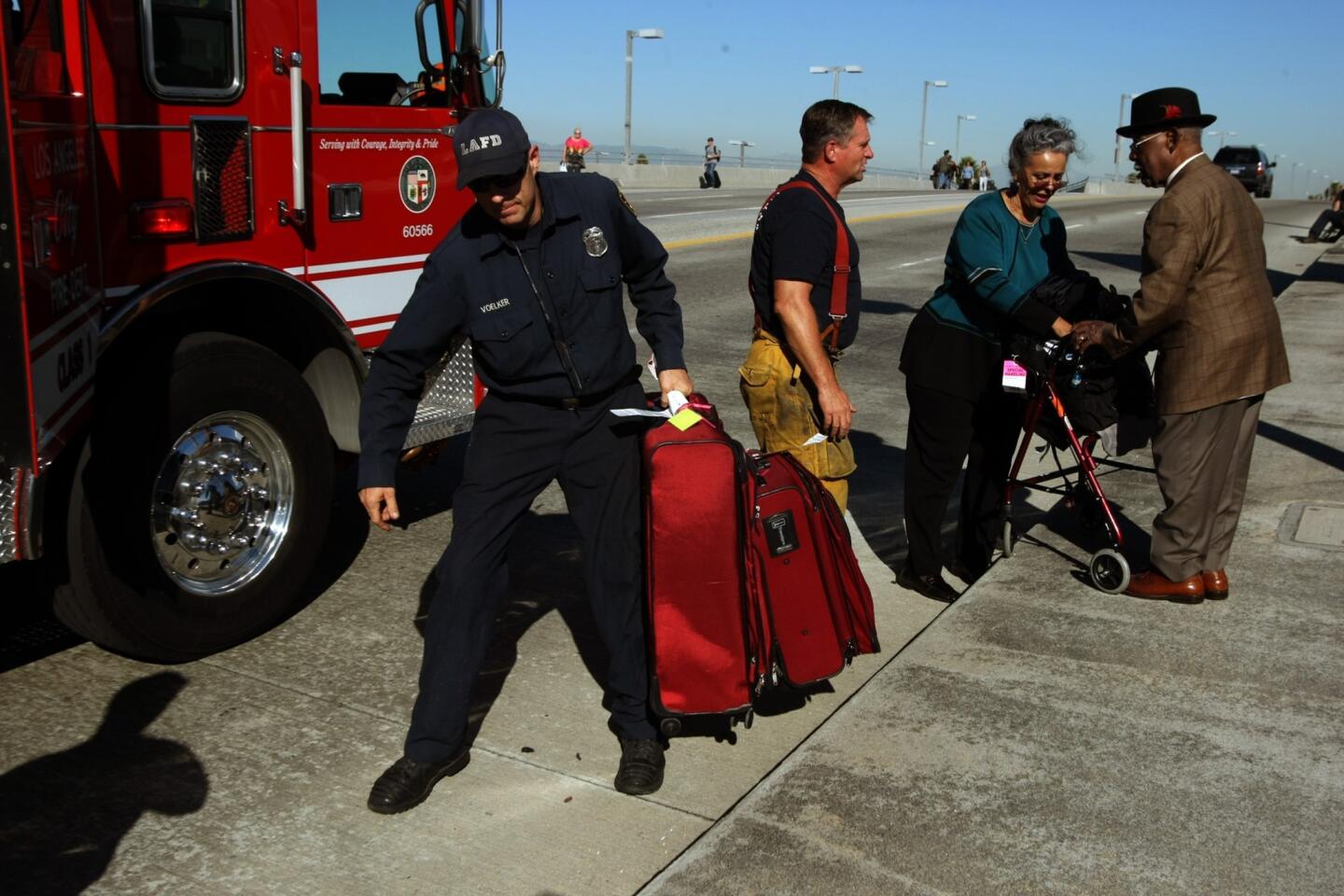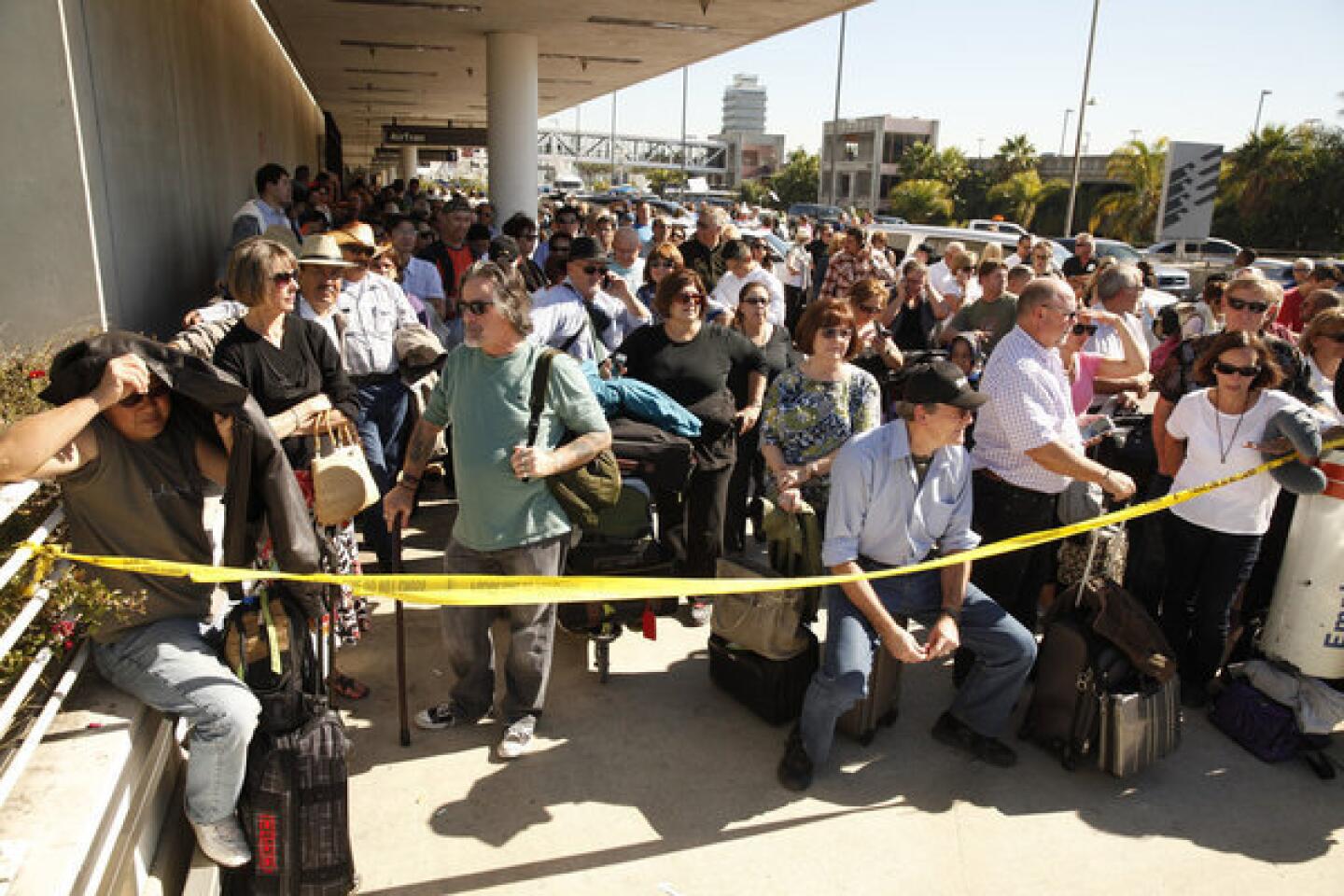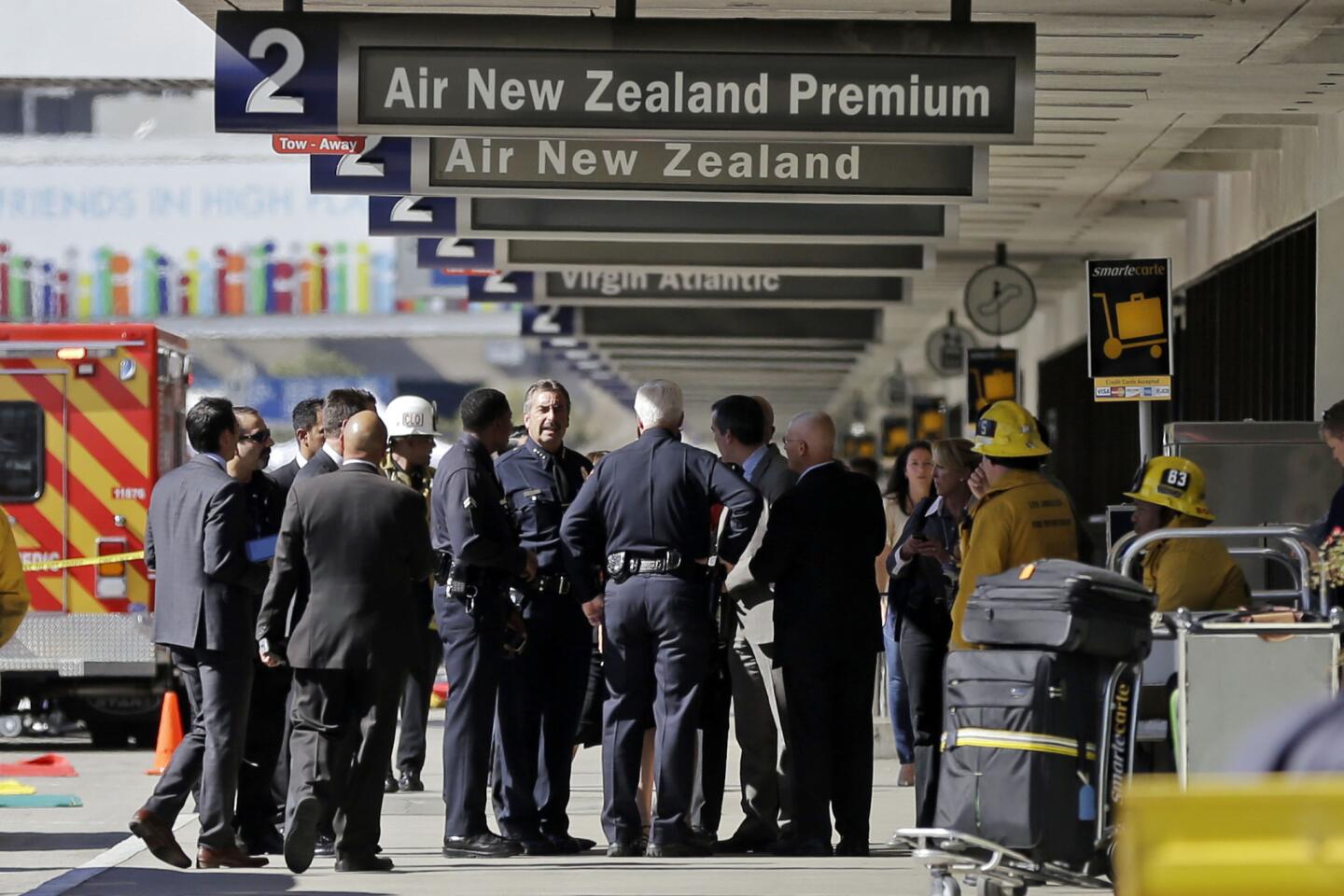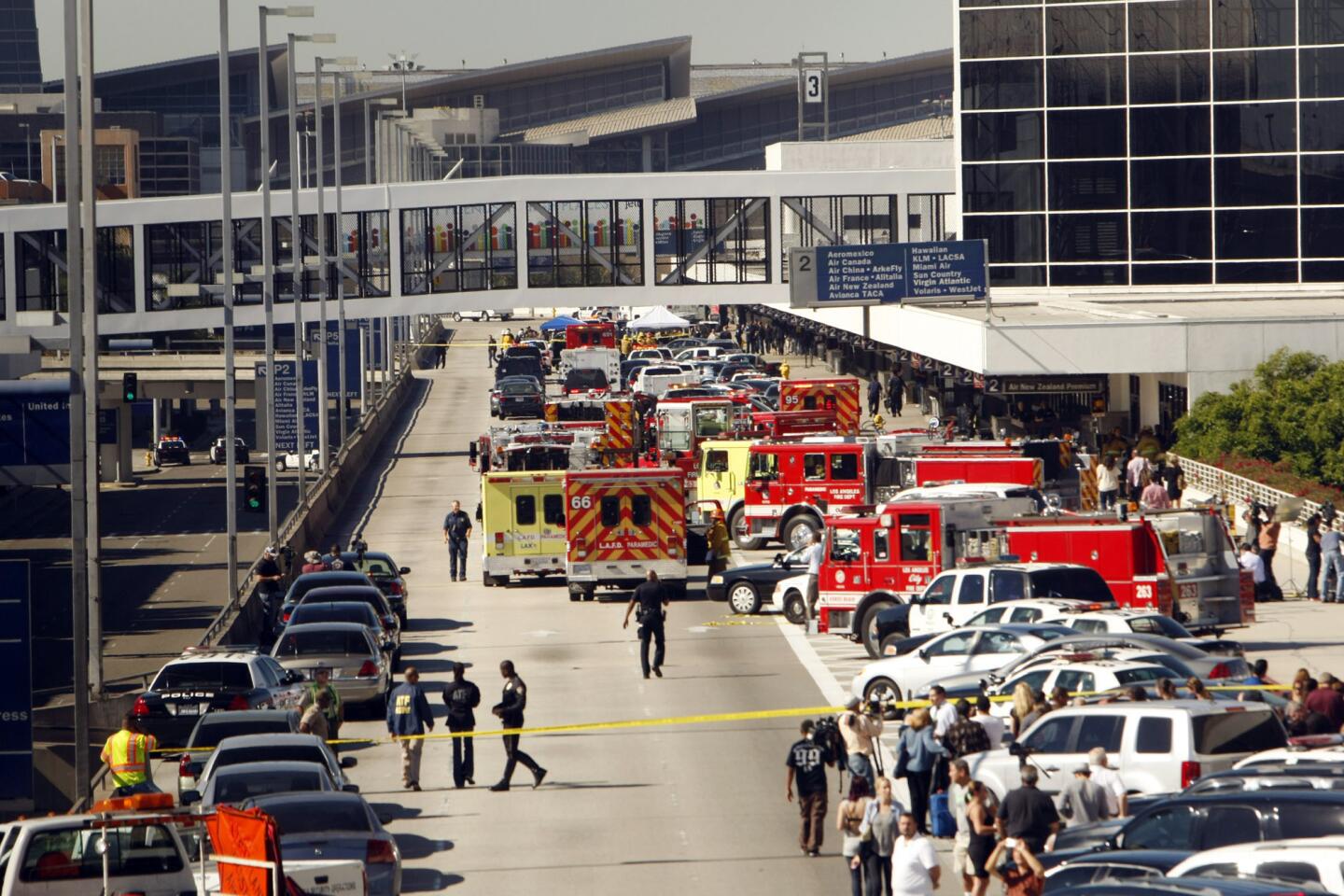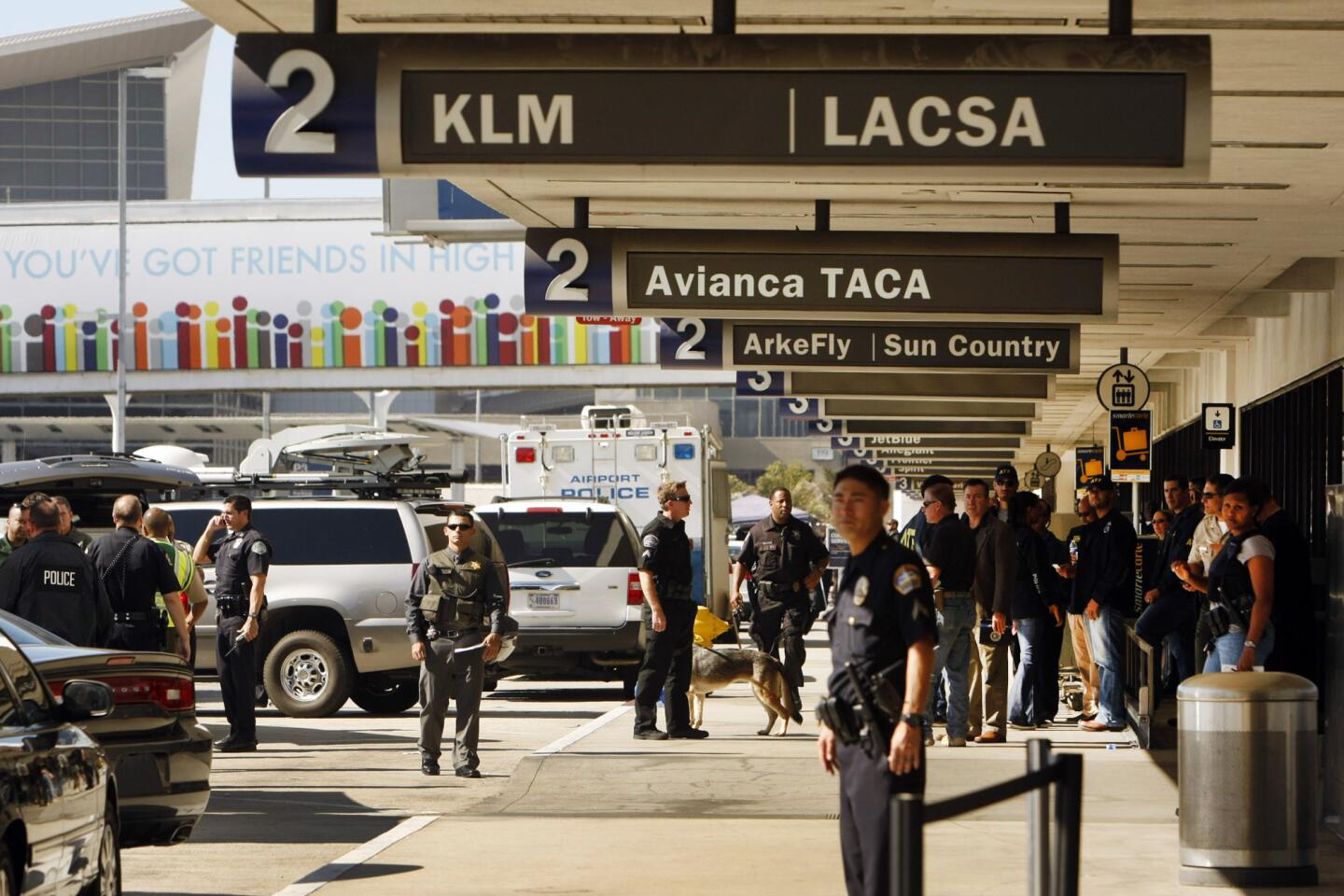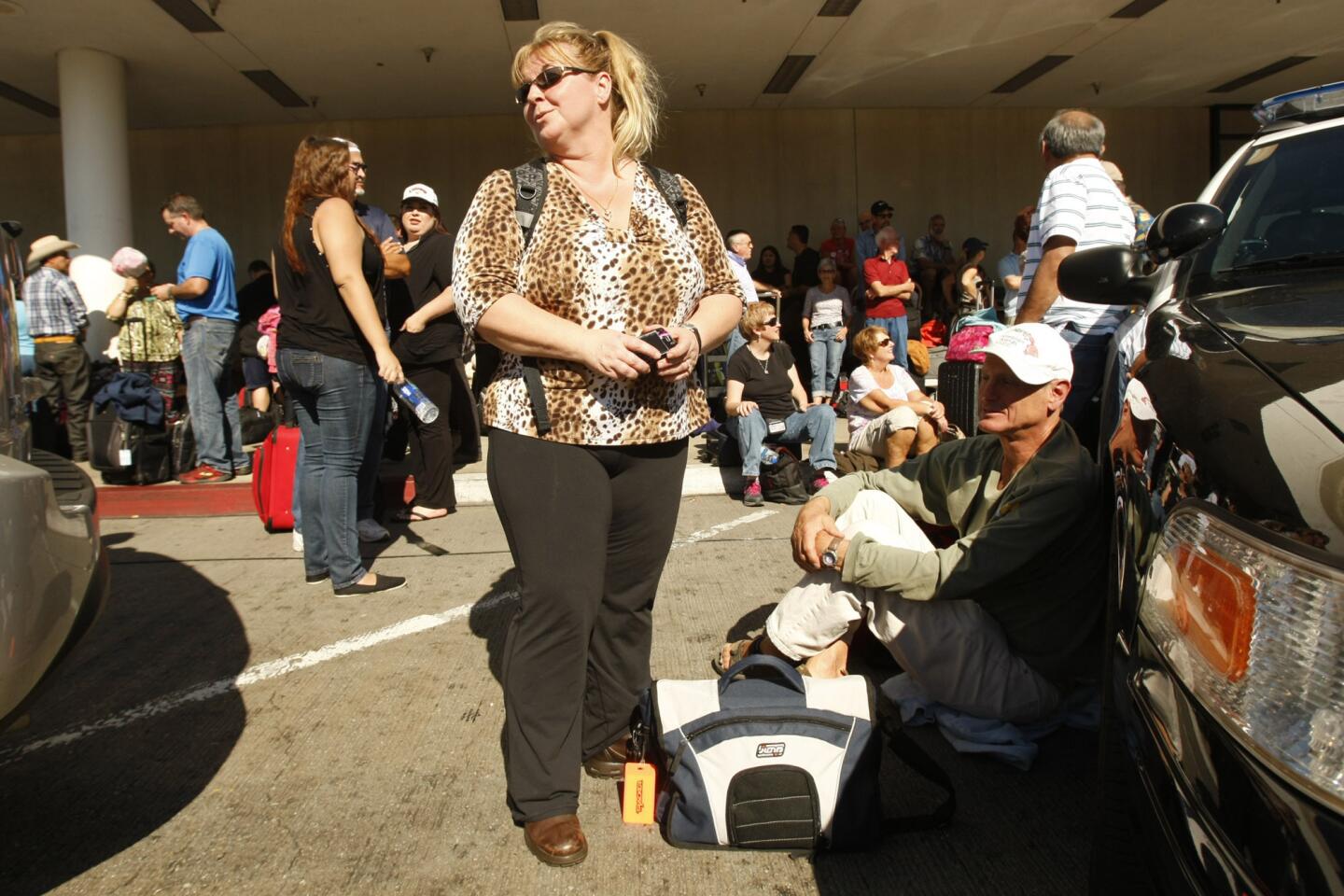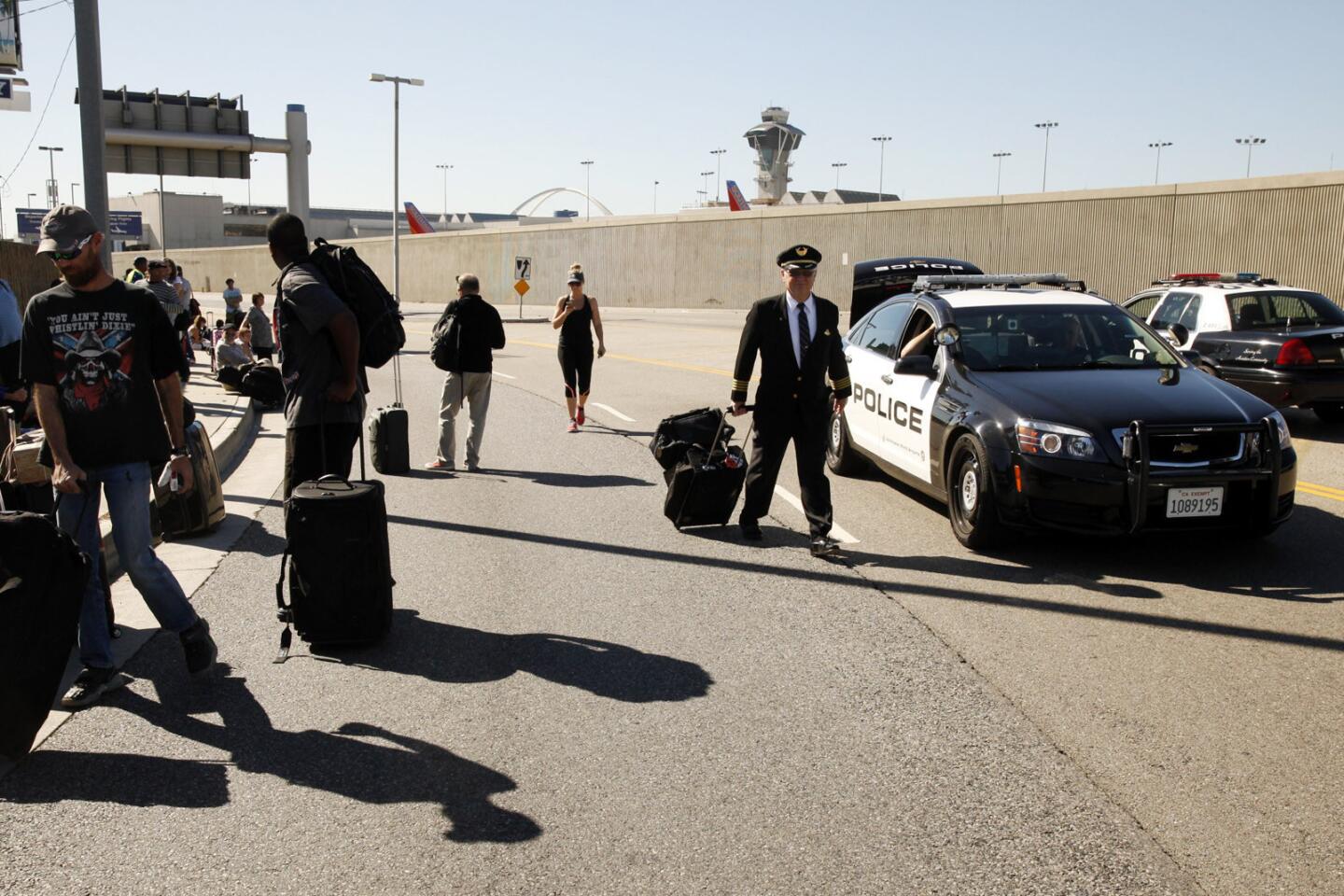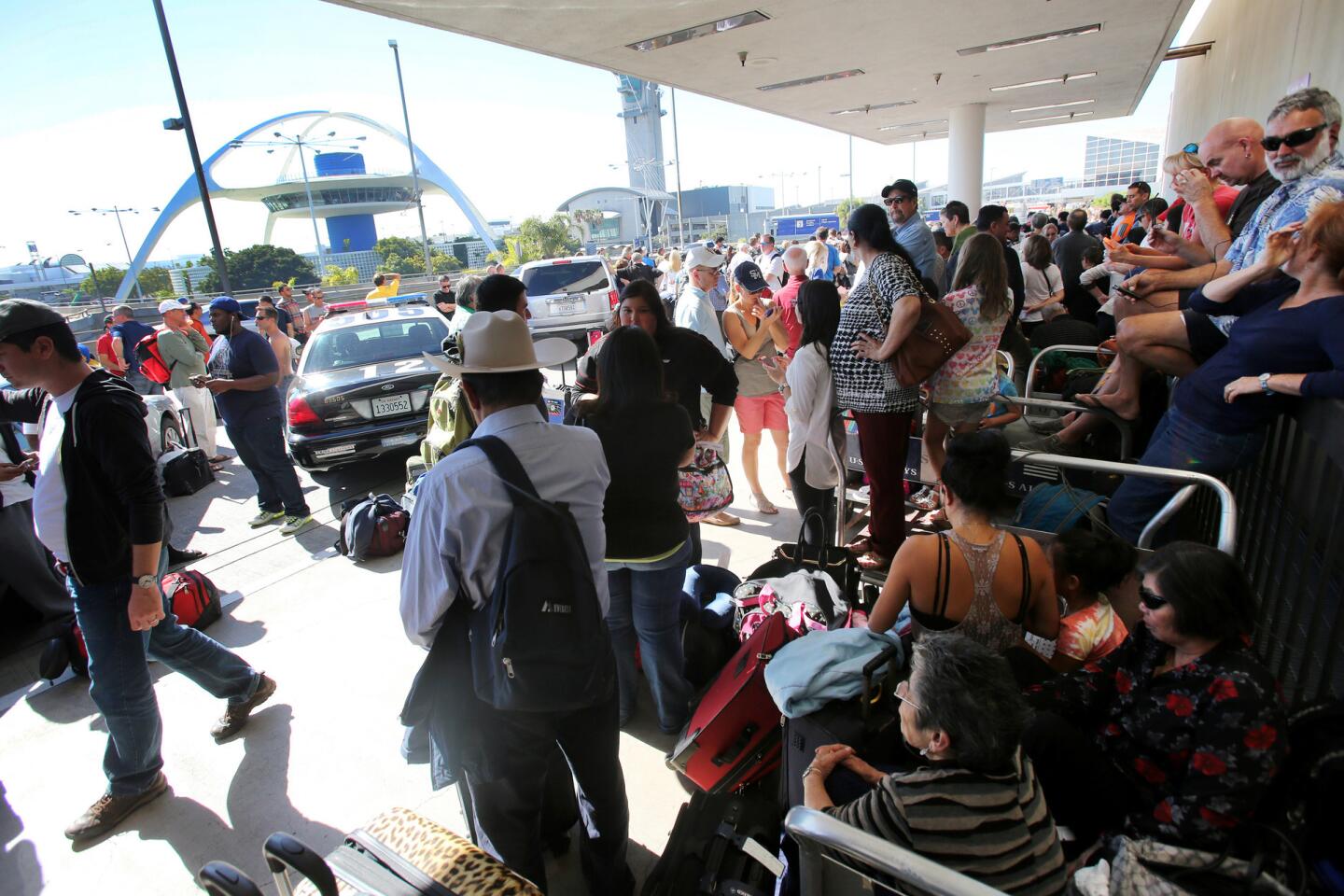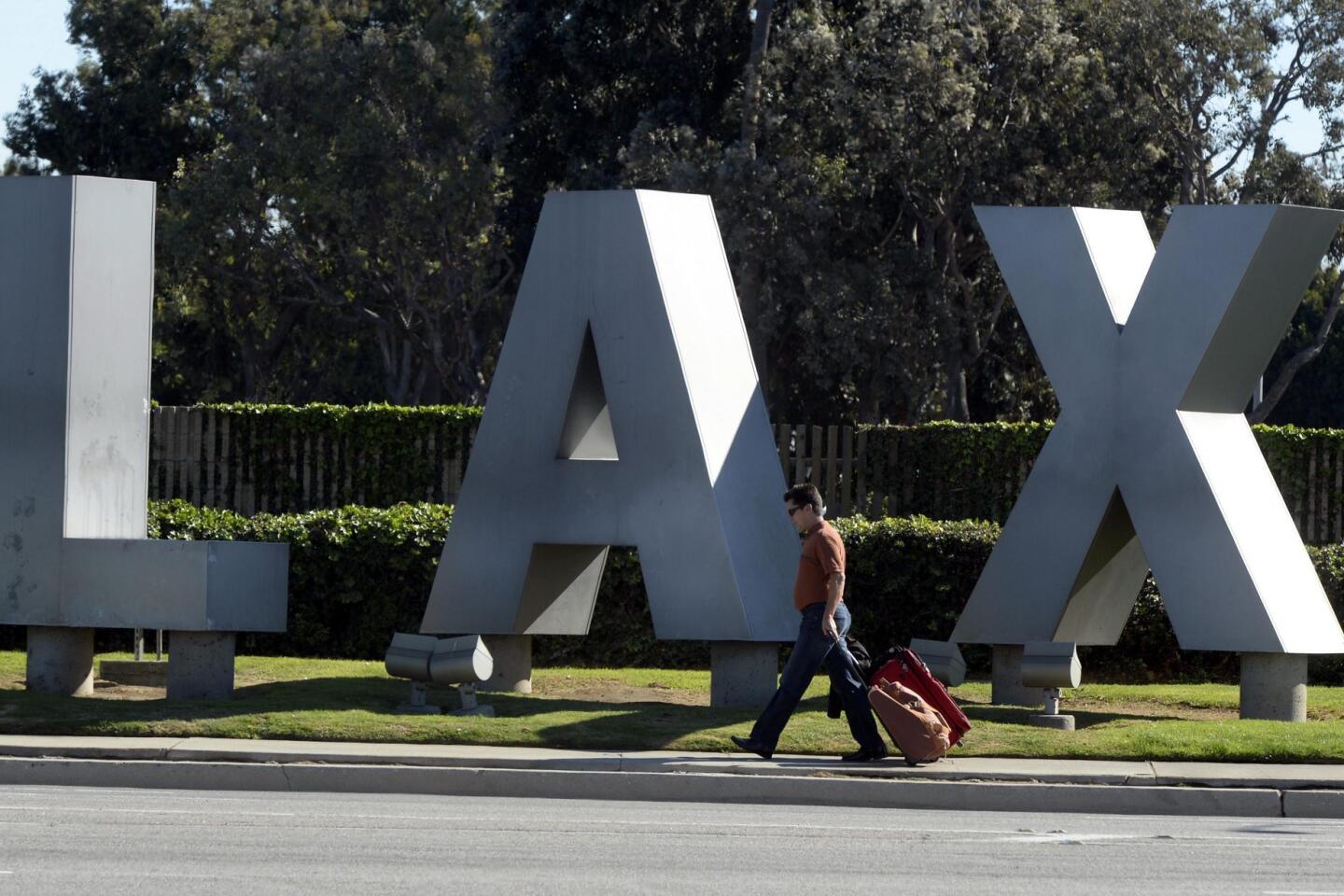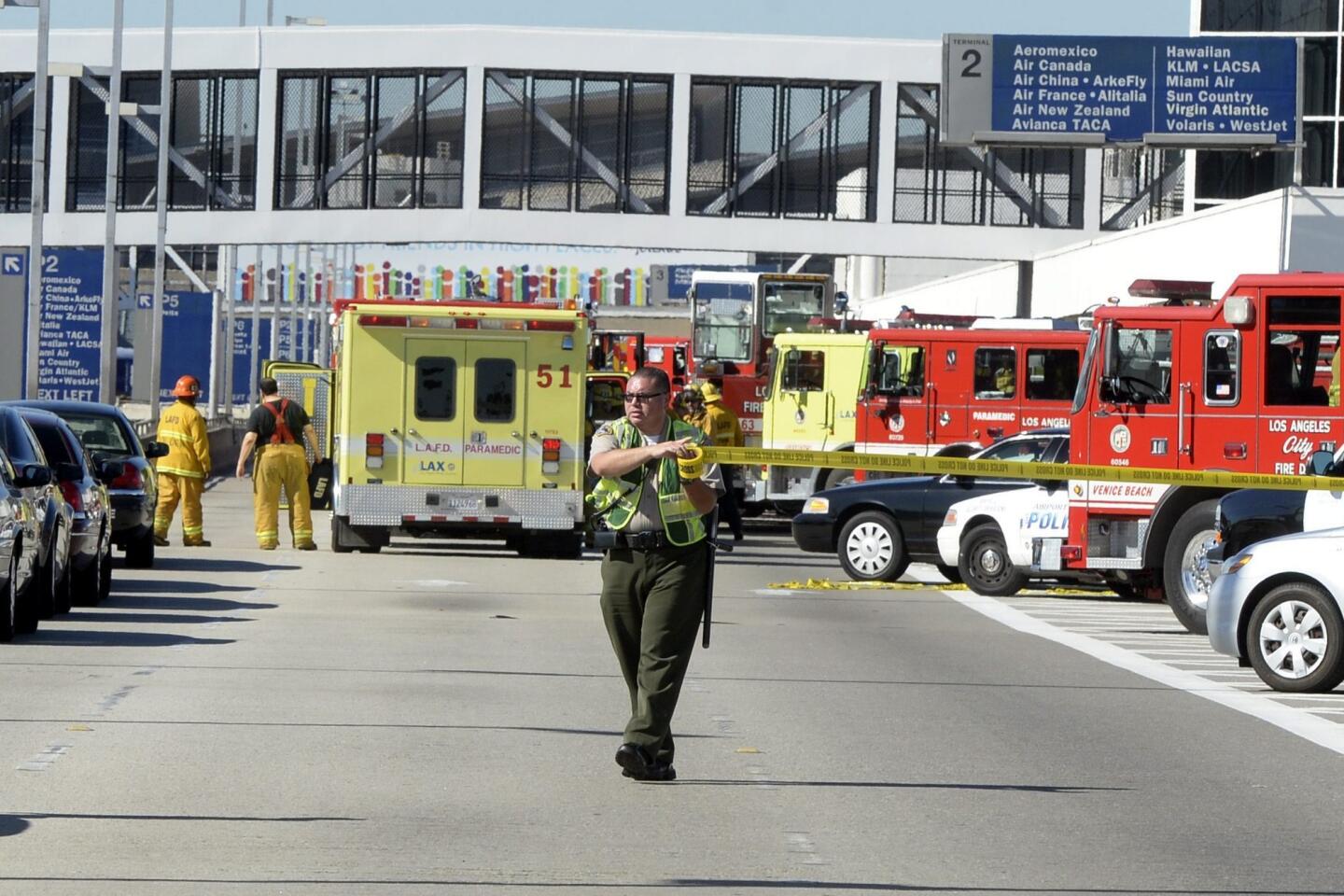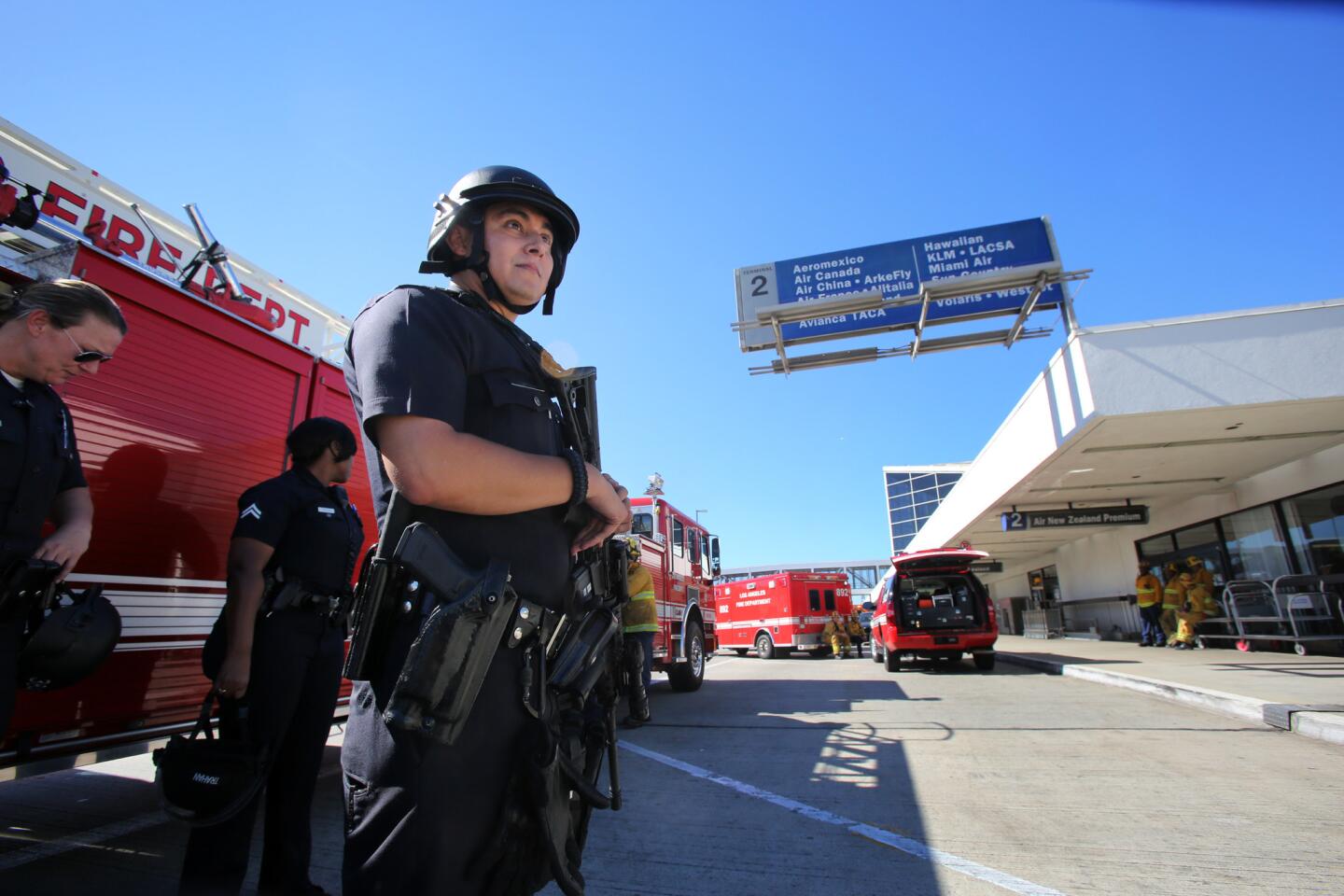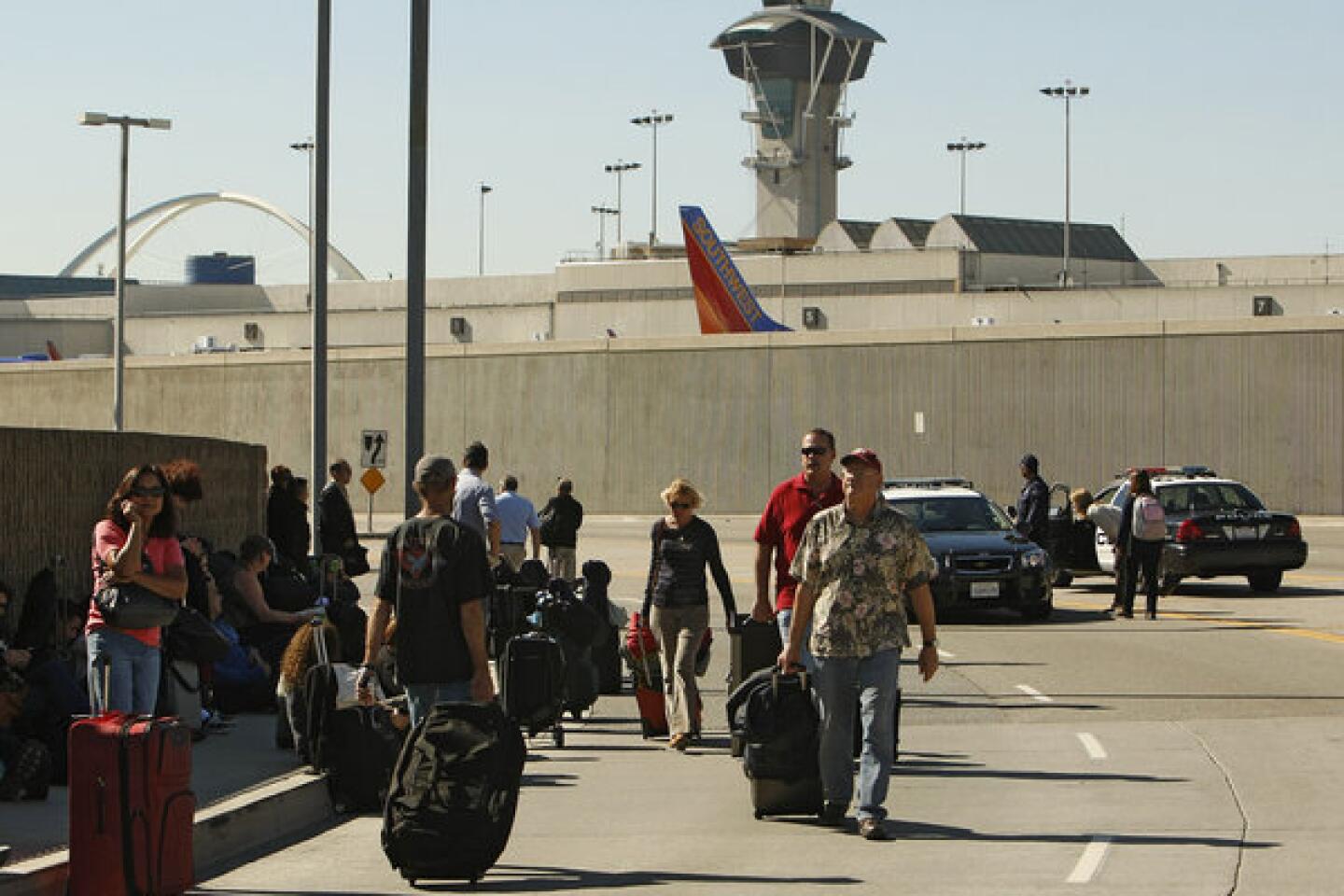TSA calls for more police at checkpoints after LAX shooting
- Share via
The Transportation Security Administration is calling for an increased police presence at agency checkpoints after November’s deadly shooting at LAX, according to a report obtained Wednesday.
The agency’s assessment covers 14 recommendations relating to employee training, improved emergency technology and law enforcement presence that will be implemented at airports nationwide.
TSA Administrator John Pistole told The Times it was a “measured response” to the Nov. 1 attack at LAX in which one officer was killed and three other people were wounded.
“The bottom line of all this is … that we are doing everything we can to provide for the best possible safety and security,” Pistole said.
Gerardo I. Hernandez, a 39-year-old father of two, became the first TSA officer killed in the line of duty when a gunman opened fire in LAX’s Terminal 3 the morning of Nov. 1.
A teacher and two other officers were wounded in what officials said was a roughly five-minute attack.
Paul Anthony Ciancia, now 24, was indicted by a federal grand jury on 11 charges -- including murder and attempted murder -- in the attack.
He has pleaded not guilty and is awaiting trial. U.S. Atty. Gen. Eric Holder has yet to decide whether he will face the death penalty.
The TSA report was a culmination of input from other stakeholders in the aviation industry, including law enforcement agencies, airport operators and the union that represents TSA employees.
Pistole said more than 100 town hall meetings were also conducted to gain employee insight. One of the concerns raised was the level of law enforcement presence at TSA checkpoints.
The report calls for an increased presence at “high-traffic locations” such as ticket counters and check points at “peak travel times.”
“The recommended standards are intended to provide visible deterrence and quicker incident response time and apply to those airports not currently using a fixed post plan,” the report said.
Months before the LAX shooting, officials there moved airport police from the TSA screening checking points to roving patrols, a move some said reduced deterrence and made terminals more vulnerable.
Los Angeles Police Chief Patrick Gannon has defended the decision, saying security needs to be flexible and unpredictable.
Pistole said the TSA had recommended law enforcement be at the checkpoints at least 50% of the busiest times but said it was important to allow airports the ability to tailor their deployment to their individual needs.
“One size doesn’t fit all,” he said.
The report also called for mandatory active-shooter training for TSA employees, routine testing of panic buttons at TSA checkpoints and the installation of such alarms at airports currently without them.
Pistole said the agency was in the process of installing “thousands” of alarms nationwide. Officials have said two of 12 panic buttons in LAX’s Terminal 3, along with an emergency phone, were not working on the day of the shooting.
Despite some suggestions the TSA create a unit of armed officers, the report said doing so would raise “jurisdictional and cost issues.”
As recently as last week, the union representing about 45,000 TSA officers called on the agency to arm some officers, saying it would “ensure a consistent, professional and coordinated response.”
Pistole disagreed, citing concerns over tactical issues, arrest authority and how officers’ other responsibilities might change.
“The vast, vast majority don’t think that’s a good idea,” he said.
LAX officials released their own assessment on the shooting last week, identifying poor communication and coordination among agencies as key failures that contributed to a chaotic evacuation and delays reaching victims.
Paramedics and firefighters had difficulty communicating with airport police by radio because each used different frequencies, the report found.
Unable to coordinate, each agency set up their own staging area. It took 45 minutes to set up a unified command center. Thousands of passengers fled to either secured airport runways or streets surrounding the airport, the report found.
Many were stranded for hours as ground transportation was at a halt. Rep. Maxine Waters (D-Los Angeles), whose district includes LAX, called the assessment “an embarrassment.”
“Los Angeles World Airports spends $125 million on security every year,” she said. “With this level of investment, LAX should have a state-of-the-art emergency response system.”
Pistole and airport officials will testify on the TSA report Friday before members of Congress at a field hearing at LAX.
Twitter: @katemather | Google+
More to Read
Sign up for Essential California
The most important California stories and recommendations in your inbox every morning.
You may occasionally receive promotional content from the Los Angeles Times.
